
- Majors & Careers
- Online Grad School
- Preparing For Grad School
- Student Life

Top 9 Best Online PhD Economics Programs [2024]

Economists have excellent job prospects in today’s labor market. With a doctorate in economics from a reputed university and strong academic record, you’ll find many well-paid job opportunities in academia or policy. Almost every field needs economists — organizations rely on economists’ statistical, analytical, and problem-solving skills to find solutions to important issues.
Most students need a master’s of economics degree to move forward with the PhD. But some schools accept transferable credits from related programs, too!
However, not everyone can afford to earn a doctorate on campus. So, an online PhD economics degree is a great alternative.
Below are some of the best online economics PhD programs and helpful information on jobs, salaries, costs, preparation tips, and more.
Table of Contents
Best Online PhD Programs in Economics
Ready to pursue your doctorate in economics online? Let’s dive into our list of top PhD economics online programs.
Liberty University

PhD in Public Policy – Economic Policy
Liberty University offers opportunities to pursue higher education across diverse disciplines with a foundation of Christian ethics. This 100% online PhD in economics program allows you to learn from established leaders in economic policy-making.
- Courses : Economic policy studies, economics & public policy, policy analysis & research design
- Credits : 60
- Duration : 3 years
- Tuition : $595 per hour
- Financial assistance : Grants, scholarships, and loans.
- Acceptance rate : 50.1%
- Location : Lynchburg, Virginia
Atlantic International University, School of Business and Economics
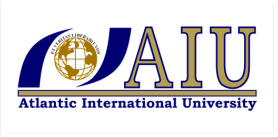
Doctor of Economics
AIU is a primarily online university that emphasizes freedom of inquiry and free thought exchange between students and faculty. This PhD in economics online degree aims to help students who want to pursue research or teaching in economics or business.
- Courses : Economics of growth & development, microeconomic research, mathematics for economists
- Tuition : Refer tuition page
- Financial assistance : Scholarships
- Acceptance rate : N/A
- Location : Honolulu, Hawaii
Bircham International University
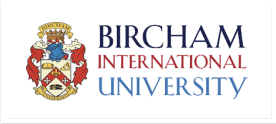
Doctor – Economic Science
Bircham International University is a global educational institution with a decentralized structure offering higher education programs in many languages. The university’s PhD economics distance learning program helps students develop a deep understanding of how people see value in the production, consumption, and distribution of goods and services.
- Courses : Micro- and macroeconomics, capital markets, economic analysis.
- Credits : 45-72
- Duration : 24 months
- Tuition : $7,650 to $12,240
- Location : Miami, Florida
Ottawa University
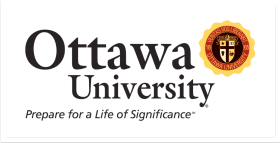
Doctor of Business Administration
Ottawa University is affiliated with the Ottawa tribe of Oklahoma and the American Baptist Church. It offers a range of online programs to mold students into valuable leaders. This distance PhD economics program is mostly online but requires six two-day residencies. Finally, the program offers courses in strategy, capital management, and finance with a focus on economics.
- Courses : Finance value generation strategy, strategic human capital management, informed decision-making
- Credits : 56
- Cost : $4,887 per semester
- Acceptance rate : 70.3%
- Location : Ottawa, Kansas
California Baptist University
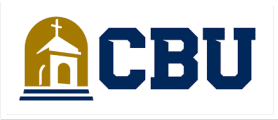
California Baptist University is a non-profit, private university that ranks #34 of the best western regional colleges. Although not an entirely online doctorate in economics, this DBA program offers courses in economics, especially on applying theories of economics to business.
- Courses : Applying economic theory to business, international business in global markets, and quantitative research
- Duration : 36 months
- Tuition : $795 per unit
- Financial assistance : Grants, loans
- Acceptance rate : 80.2%
- Location : Riverside, California
Hampton University Online
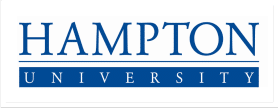
Doctor of Philosophy in Business Administration
Hampton University Online provides opportunities for adults to continue their studies through mostly online means and with a scientific approach. This PhD is a hybrid business administration program that involves two compulsory four-week summer residencies and covers managerial economics as part of the program.
- Courses : Managerial economics, organization theory & practice, organizational behavior
- Credits : 61
- Duration : 3.5 years
- Tuition : $695 per credit
- Financial assistance : Scholarships, grants, work-study, loans, and military benefits.
- Acceptance rate : 36%
- Location : Hampton, Virginia
Marymount University, College of Business, Innovation, Leadership, and Technology (BILT)
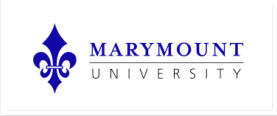
Online DBA in Business Intelligence
Marymount University was ranked #31 by US News & World of all southern regional colleges. This online Doctor of Business Administration is equivalent to an economics PhD online program as you can study economics for business decision-making and courses in strategy with a data-driven approach.
- Courses : Economics for business decision making, using data for business intelligence, and strategy in a changing climate.
- Credits : 36
- Tuition : $1,140 per credit hour
- Financial assistance : Grants, scholarships, loans, student employment, and assistantships.
- Acceptance rate : 85.3%
- Location : Arlington, Virginia
William Howard Taft University
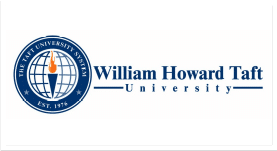
William Howard Taft University is a leader in distance education and aims to provide affordable and quality education in business, law, education, and other disciplines. This DBA program includes several courses in economics and its application in the business sector.
- Courses : Designing economic business strategies, global economy, and global business practices & challenges.
- Duration : 37 months
- Tuition : $360 per credit
- Financial assistance : Scholarships, grants, military benefits, loans, and employer reimbursement.
- Location : Lakewood, Colorado
Baker College
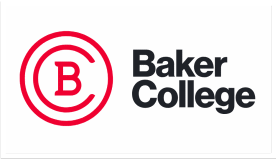
Baker College was named one of Newsweek’s top American online schools and offers fully online and hybrid programs in fields such as business, health science, and education. This DBA program has microeconomics and macroeconomics courses and explores how business leaders implement successful global strategies with limited resources.
- Courses : Global financial economy, leading 21st-century organizations, managing in a worldwide context
- Tuition : $915 per credit hour
- Financial assistance : Scholarships, grants, and loans.
- Acceptance rate : 73%
- Location : Owosso, Michigan
What Do I Need to Get a PhD in Economics?
You will likely need an undergraduate or postgraduate degree in economics or a related field to apply for a PhD in economics program. Certain programs may have other prerequisites, so check with the admissions office well in advance of the application deadline.
Once accepted, you’ll have to study various courses in economics, finance, business, management, mathematics, statistics, and strategy to earn your PhD in economics online degree.
Finally, you’ll have to pass examinations and other assessments, including a final qualifying exam. Most programs also have a research component, which means submitting a thesis or dissertation.
Preparing for an Economics Doctorate Program
Our advice? Prepare early for your PhD in economics program.
At the undergraduate level, consider taking more courses in subjects like mathematics, statistics, and calculus. It also helps to work with faculty, conduct undergraduate research, and complete professional internships whenever possible. All this lays the groundwork to prepare you well for a PhD in economics program.
Things to Consider When Choosing an Online PhD Economics Program
The right program for you depends on a range of personal factors. Consider the following when assessing programs to narrow it down:
- Make sure the specializations and subjects offered by the program match your passions and will help you achieve your career goals.
- Review available research options and make sure these also match your goals
- The faculty should have a strong reputation, especially in your field of choice
- Ensure the costs fit your budget or that there are sufficient funding options available
- Look at where past alumni are now working, and see how this fits with your ideal future
Why Get a Doctorate in Economics?
A doctorate in economics opens doors to some of the best jobs in academia and policy. According to the Bureau of Labor Statistics, an economist’s median salary is $105,630. Even better, jobs in the field are expected to grow by 13% from 2020-2030, higher than the average of all occupations.
Jobs and Salaries for Doctors of Economics
A PhD in economics online credential can equip you for roles in business, government, research, and education. Here are some top jobs for graduates, with average salaries for each:
- Economist ( $79,352 )
- Statistician ( $78,596 )
- Financial Manager ( $96,045 )
- Urban Planner ( $59,309 )
- Financial Analyst ( $63,195 )
What Is the Average Cost of a PhD in Economics?
According to the National Center for Education Statistics (NCES), the average tuition for a PhD in economics program is $19,749 per year. You can expect to pay around $12,500 for public university programs and $26,621 for private. Keep in mind these figures only cover tuition – you’ll also need to pay for books, technology fees, and other educational expenses.
How Long Does it Take to Get a PhD in Economics?
Typically, a PhD in economics takes 4-6 years to complete. However, you may be able to complete a doctorate in three or even two years at some universities, especially with an online PhD.
What Skills Do You Gain From a PhD in Economics?
First and foremost, you’ll gain strong mathematical, statistical, and analytical skills as part of your doctorate in economics. You’ll also learn to apply economic concepts and modeling to address issues in business, government, finance spaces. Finally, economics PHD grads gain expertise in writing, presentation, communication, and problem-solving.
Facts and Statistics about Economics PhD Holders
According to Brookings, universities awarded 1,216 PhDs in economics in 2020 — 66% to men and 34% to women. Foreign students with temporary visas earned around 60% of the doctorates.
Among the permanent residents who got doctorates in economics, 4.9% were black and 71.8% white, with the remaining graduates of Asian, Hispanic, and other descent.
Final Thoughts
Compared to online PhDs from other disciplines, you won’t find as many online PhD economics programs. However, you can find related programs, like online Doctor of Business Administration ( DBA ) or accounting with an emphasis on economics-related subjects like microeconomics and macroeconomics. This is a good substitute if your preferred university doesn’t offer a PhD economics online degree.
Considering other business-related PhD programs? Keep a clear path toward a lucrative career with our list of the highest paying PhDs .
Frequently Asked Questions
Can you get a phd in economics online.
Yes – some universities offer online PhD economics programs that you can complete online. Many of these online programs can be completed in as little as three years.
Is an Economics PhD Worth It?
A PhD in economics is one of today’s most sought-after qualifications. Economists are in high demand and have an annual median salary of $105,630 , with prospects even greater for graduates with a PhD.
How Many Years is a PhD in Economics?
A PhD in economics takes 3-6 years to complete.

Lisa Marlin
Lisa is a full-time writer specializing in career advice, further education, and personal development. She works from all over the world, and when not writing you'll find her hiking, practicing yoga, or enjoying a glass of Malbec.
- Lisa Marlin https://blog.thegradcafe.com/author/lisa-marlin/ 12 Best Laptops for Computer Science Students
- Lisa Marlin https://blog.thegradcafe.com/author/lisa-marlin/ ACBSP Vs AACSB: Which Business Program Accreditations is Better?
- Lisa Marlin https://blog.thegradcafe.com/author/lisa-marlin/ BA vs BS: What You Need to Know [2024 Guide]
- Lisa Marlin https://blog.thegradcafe.com/author/lisa-marlin/ The 19 Best MBA Scholarships to Apply for [2024-2025]
What Is the Best iPad for Students in 2024?
Top 6 best academic planners for 2024/2024, related posts.

- Grad Trends: Interest in Artificial Intelligence Surges

- Applying to Big Tech This Year? Here’s How to Ace It.

73% of job seekers believe a degree is needed for a well-paying role–but is it?

Tech Talent Crunch: Cities with More Jobs Than Workers

The Most Under-Rated Career Advancement Tip for 2024

Top 5 Best Psychology PhD Programs in 2024

Leave a Reply Cancel reply
Your email address will not be published. Required fields are marked *
Save my name, email, and website in this browser for the next time I comment.
Recent Posts
- Breaking Records: Yale Sees Most Selective Grad Admissions Season Yet
- 12 Best Laptops for Computer Science Students
- Is a Master’s Degree Worth It? [2024 Guide]

© 2023 TheGradCafe.com All rights reserved
- Partner With Us
- Results Search
- Submit Your Results
- Write For Us
Ph.D. Program
Make an impact: The intellectual rigor from researchers associated with Yale Economics drives innovations in domestic and international policy.

- Requirements
Yale's Department of Economics offers a challenging and rigorous academic program, a distinguished and accessible faculty, and a friendly, supportive environment for study.
Our core teaching faculty of 66 is supported by a diverse group of visiting professors and graduate student teaching assistants, making it one of the largest economics departments in the United States with one of the highest teacher/student ratios for the 130 Ph.D. students in residence.
The Department of Economics also has close ties with professional schools in related fields, such as the Yale School of Management, the Yale School of the Environment, and the Yale School of Public Health, where many of its secondary faculty members teach. It also works with affiliated centers, including the Cowles Foundation for Research in Economics, the Economic Growth Center, and the newly created Tobin Center for Economic Policy .
- The Program
- Prospective Students
- Milestones and Timeline
- Student Resources
- Student Directory
Our Program
Yale's economics faculty embraces a broad range of research and teaching interests. Courses and seminars span a wide spectrum of economics, from dynamic structural models to field experiments. Our students apply econometric and data analytic methods to a variety of subjects in macroeconomics, labor economics and finance. Our courses examine critical economic policy issues, including antitrust and environmental regulation. Our focus is global, spanning the United States and developed economies to the developing nations of Latin America, Asia and Africa. Whatever your interest, our faculty is ready to guide you through a wide offering of more than a hundred regular courses, seminars or workshops, combined with individually tailored reading and research courses to best prepare you for your Ph.D. research and dissertation.
Our faculty is eclectic in methodologies and views of economics. There is no Yale dogma or school. You will acquire a critical perspective on the full range of approaches to macroeconomics. You will be well trained in neoclassical theory and in the theory of public choice, externalities and market failures. You will master the skills of sophisticated modern econometrics and understand pitfalls in its applications. You will gain respect for the power of contemporary mathematical models and also for history and for the insights of the great economists of the past.

Fields of Study
Important dates.
Dec. 21, Wed. Fall Term ends, Winter Recess begins.
Dec. 22 Thurs. Date of December degree award
Jan. 12, Thurs. Add/drop period opens, 8:30 am
Full calendar

Doctoral Program
The Ph.D. program is a full time program leading to a Doctoral Degree in Economics. Students specialize in various fields within Economics by enrolling in field courses and attending field specific lunches and seminars. Students gain economic breadth by taking additional distribution courses outside of their selected fields of interest.
General requirements
Students are required to complete 1 quarter of teaching experience. Teaching experience includes teaching assistantships within the Economics department or another department .
University's residency requirement
135 units of full-tuition residency are required for PhD students. After that, a student should have completed all course work and must request Terminal Graduate Registration (TGR) status.
Department degree requirements and student checklist
1. core course requirement.
Required: Core Microeconomics (202-203-204) Core Macroeconomics (210-211-212) Econometrics (270-271-272). The Business School graduate microeconomics class series may be substituted for the Econ Micro Core. Students wishing to waive out of any of the first year core, based on previous coverage of at least 90% of the material, must submit a waiver request to the DGS at least two weeks prior to the start of the quarter. A separate waiver request must be submitted for each course you are requesting to waive. The waiver request must include a transcript and a syllabus from the prior course(s) taken.
2. Field Requirements
Required: Two of the Following Fields Chosen as Major Fields (click on link for specific field requirements). Field sequences must be passed with an overall grade average of B or better. Individual courses require a letter grade of B- or better to pass unless otherwise noted.
Research fields and field requirements :
- Behavioral & Experimental
- Development Economics
- Econometric Methods with Causal Inference
- Econometrics
- Economic History
- Environmental, Resource and Energy Economics
- Industrial Organization
- International Trade & Finance
- Labor Economics
- Market Design
- Microeconomic Theory
- Macroeconomics
- Political Economy
- Public Economics
3. Distribution
Required: Four other graduate-level courses must be completed. One of these must be from the area of economic history (unless that field has already been selected above). These courses must be distributed in such a way that at least two fields not selected above are represented. Distribution courses must be passed with a grade of B or better.
4. Field Seminars/Workshops
Required: Three quarters of two different field seminars or six quarters of the same field seminar from the list below.
Explore your training options in 10 minutes Get Started
- Graduate Stories
- Partner Spotlights
- Bootcamp Prep
- Bootcamp Admissions
- University Bootcamps
- Coding Tools
- Software Engineering
- Web Development
- Data Science
- Tech Guides
- Tech Resources
- Career Advice
- Online Learning
- Internships
- Apprenticeships
- Tech Salaries
- Associate Degree
- Bachelor's Degree
- Master's Degree
- University Admissions
- Best Schools
- Certifications
- Bootcamp Financing
- Higher Ed Financing
- Scholarships
- Financial Aid
- Best Coding Bootcamps
- Best Online Bootcamps
- Best Web Design Bootcamps
- Best Data Science Bootcamps
- Best Technology Sales Bootcamps
- Best Data Analytics Bootcamps
- Best Cybersecurity Bootcamps
- Best Digital Marketing Bootcamps
- Los Angeles
- San Francisco
- Browse All Locations
- Digital Marketing
- Machine Learning
- See All Subjects
- Bootcamps 101
- Full-Stack Development
- Career Changes
- View all Career Discussions
- Mobile App Development
- Cybersecurity
- Product Management
- UX/UI Design
- What is a Coding Bootcamp?
- Are Coding Bootcamps Worth It?
- How to Choose a Coding Bootcamp
- Best Online Coding Bootcamps and Courses
- Best Free Bootcamps and Coding Training
- Coding Bootcamp vs. Community College
- Coding Bootcamp vs. Self-Learning
- Bootcamps vs. Certifications: Compared
- What Is a Coding Bootcamp Job Guarantee?
- How to Pay for Coding Bootcamp
- Ultimate Guide to Coding Bootcamp Loans
- Best Coding Bootcamp Scholarships and Grants
- Education Stipends for Coding Bootcamps
- Get Your Coding Bootcamp Sponsored by Your Employer
- GI Bill and Coding Bootcamps
- Tech Intevriews
- Our Enterprise Solution
- Connect With Us
- Publication
- Reskill America
- Partner With Us
- Resource Center
- Bachelor’s Degree
- Master’s Degree
Best Online Doctorates in Economics: Top PhD Programs, Career Paths, and Salary
The best online PhD in Economics offers a broad, comprehensive knowledge of how economics affects the global landscape. An online program at the doctoral level in economics provides graduates with the advanced analytical and critical thinking skills they need to build successful careers in banking, government, politics, healthcare, insurance, and non-profit sectors.
If you are looking to get an online PhD in Economics, then this article is for you. This guide contains a list of the best schools you can earn your economics PhD online, their admission requirements and tuition, as well as the economics jobs you’ll qualify for after graduating from business school.
Find your bootcamp match
Can you get a phd in economics online.
Yes, you can get a PhD in Economics online. Online degree programs offer students the opportunity to earn an economics doctoral degree without the inconvenience of taking physical classes on the university campus. Online graduate programs are a great choice for students who are restricted by geographical location or who prefer to take online classes.
Is an Online PhD Respected?
Yes, an online PhD is respected. They have the same coursework, curriculum, and degree requirements as in-person degrees. A survey by the Society for Human Resources Management on hiring practices and attitudes reported that 55 percent of organizations would not give preference to a candidate with an in-person degree over one with an online degree if both had the same job experience.
That being said, students need to ensure that they get their online degrees from an accredited online school . Accreditation demonstrates that a school meets the minimum acceptable academic standards set by an external accreditation body to be able to offer academic degrees. Checking a school’s accreditation status before beginning the application process is recommended.
What Is the Best Online PhD Program in Economics?
The best online PhD program in economics is the PhD in Public Policy – Economic Policy offered by Liberty University. Out of all the online doctoral degree programs on our list, Liberty University’s PhD in Public Policy – Economic Policy’s high-quality curriculum and faculty stand out among the others.
Why Liberty University Has the Best Online PhD Program in Economics
Liberty University has the best online economics PhD program because of its well-rounded curriculum, giving students a comprehensive understanding of national and global public and economic policies. Students take classes taught by industry leaders and experienced policymakers and take high-level courses in public and economic theory and policy, policy analysis, and research design.
Best Online Master’s Degrees
[query_class_embed] online-*subject-masters-degrees
Online PhD in Economics Admission Requirements
The typical admission requirements for an online PhD in Economics are a Master’s Degree in Economics or in a related field from an accredited institution with a minimum cumulative GPA of 3.0 on a 4.0 scale. Other common requirements include recommendation letters, an interview, your resume, a statement of purpose or personal statement, and professional work experience.
While the specific requirements will differ from one school to the next, prospective students are always required to submit their unofficial or official transcripts of all of their undergraduate and graduate coursework. Although some schools have waived this due to the pandemic, many require students to submit GMAT or GRE test scores as part of the application process.
- A Master’s Degree in Economics or in a related field from an accredited institution
- A minimum cumulative GPA of 3.0 on a 4.0 scale
- Three letters of recommendation
- A copy of your resume
- A statement of purpose or personal statement
- Professional work experience
- Your GMAT or GRE test scores
- An online interview
Best Online PhDs in Economics: Top Degree Program Details
Best online phds in economics: top university programs to get a phd in economics online.
The top university programs to get a PhD in Economics online are able to let students benefit from experiencing diverse cultures and learning from a high-quality curriculum with many research opportunities without having to relocate. It is a great option for students who want to balance school with work, family, or other personal commitments. Here are the best online PhDs in Economics.
California Baptist University was founded in 1950 and is located in the city of Riverside in Southern California. This private, Christian university offers a wide variety of bachelor’s, master’s, doctoral and associate degrees , as well as certificate programs in an in-person and online format.
Doctor of Business Administration
The online Doctor of Business Administration at California Baptist University is a 56-credit-hour doctorate program that equips students with the specialized skills and insights needed to achieve their career goals. Students will gain the tools and theoretical foundation to carry out research and develop actionable plans with the goal of solving complex business problems.
Doctor of Business Administration Overview
- Accreditation: Western Association of Schools and Colleges Senior College and University Commission
- Program Length: 3 years
- Acceptance Rate: N/A
- Tuition and Fees: $795/credit
Doctor of Business Administration Admission Requirements
- A Master’s Degree in Business Administration from an accredited institution
- A copy of your resume with your work experience and education, and your leadership, professional and scholarly activities
- Meeting the professional guidelines set by the Accreditation Council for Business Schools and Programs (ACBSP)
- Your official transcripts
Hampton University , founded in 1861, is a dynamic institution of higher learning offering a wide range of technical, liberal, and arts degree programs at all education levels. Its 97 degree programs can be found in different fields of study, including business, engineering and technology, nursing, pharmacy, science, and liberal arts.
Doctor of Philosophy in Business Administration
This is a 60-credit-hour program for students aspiring to become consultants, researchers, and academicians in leadership roles in the industry. It is a hybrid program with two compulsory four-week summer residencies. Students take core courses in managerial economics, quantitative business analysis, and accounting.
Doctor of Philosophy in Business Administration Overview
- Accreditation: Southern Association of Colleges and Schools Commission on Colleges
- Tuition and Fees: $695/credit
Doctor of Philosophy in Business Administration Admission Requirements
- A master’s degree from an accredited institution. Prerequisite courses may have to be taken depending on the master’s degree held
- A copy of your resume with at least three years of work experience relevant to the field of study
- A GMAT score of at least 400
- A written Statement of Career Plans or Professional Plans
- Your official transcripts
Liberty University was founded in 1971 in Lynchburg, Virginia and is a private, Christian college offering world-class education. It has a total enrollment of over 100,000 students across its over 700 programs at all educational levels, including doctoral programs. The majority of its students are enrolled in online courses, making it one of the largest distance learning institutions in the country.
PhD in Public Policy - Economic Policy
This is a 60-credit hour program for students wanting to learn how to better serve the public interest and create actionable solutions to today’s global economic challenges. It provides the specialized knowledge that students need to land leadership job roles in government, consulting, and international organizations.
PhD in Public Policy - Economic Policy Overview
- Accreditation: Southern Association of Colleges and Schools Commission on Colleges
- Tuition and Fees: $595/credit
PhD in Public Policy - Economic Policy Admission Requirements
- Complete and submit an online application form
- A master’s degree with a minimum GPA of 3.0 on a 4.0 scale
- Pay a non-refundable $50 application fee
- Submit your official undergraduate and graduate transcripts
Marymount University is a private catholic university founded in 1950. Ranked 38th among the best southern regional universities by US News & World Report, it has over 4,000 students enrolled in its wide range of bachelor’s, master’s, and doctoral degree programs. Marymount combines theory with experiential learning to provide its students with valuable education, leading them to gratifying careers.
Online Doctor of Business Administration in Business Intelligence
Offered by Marymount’s College of Business, Innovation, Leadership, and Technology, this 36-credit program introduces students to real-world business intelligence tools currently used by professionals in leadership positions. Students develop analytical, higher-order thinking, and research skills and work on a doctoral research project that attempts to solve real-world issues.
Online Doctor of Business Administration in Business Intelligence Overview
- Accreditation: Southern Associations of Colleges and Schools Commission on Colleges
- Tuition and Fees: $1,140/credit
Online Doctor of Business Administration in Business Intelligence Admission Requirements
- A completed online application
- A master’s degree in a business or IT related field
- Five to 10 years of work experience
- A minimum GPA of 3.5
- A statement of research background and interest
- A writing sample
Founded in 1947 and headquartered in College Park, Maryland, the University of Maryland - Global Campus (UMGC) is the online division of the University System of Maryland. UMGC first began offering online courses in the mid-1990s and is now home to a wide range of bachelor’s, master’s, and doctoral programs obtainable fully online.
PhD in Business Administration
This 48-credit program provides its students with a solid foundation in economic theory and statistical methods. Offering advanced courses in data analytics, management solutions, and research methods, this terminal degree requires the completion of a 12-credit dissertation project.
PhD in Business Administration Overview
- Accreditation: Middle States Commission on Higher Education
- Acceptance Rate: NA
- Tuition and Fees: $1,087/credit
PhD in Business Administration Admission Requirements
- Completed the Foundation of Doctoral Studies course with a minimum B grade
- Completion of UMGC’s online admission application
- A master’s degree
- Two professional references
- A personal statement
- A writing sample (optional)
- An interview, if requested by the UMGC admission committee
Online Economics PhD Graduation Rates: How Hard Is It to Complete an Online PhD Program in Economics?
It is very hard to complete an online PhD in Economics. This can be attributed to the stress students experience, as well as lack of motivation. Those that want to pursue a PhD must be certain that they are academically and financially prepared.
How Long Does It Take to Get a PhD in Economics Online?
It takes about three years to get a PhD in Economics online. Although, it can take as long as seven or eight years, depending on the school’s curriculum, learning pace, and specialization. Over these three years, students need to complete a certain number of courses, pass written or oral exams, and research and write a dissertation on their chosen research topic.
How Hard Is an Online Doctorate in Economics?
An online Doctorate in Economics is very hard. It is a broad, multidisciplinary degree that involves the study of complex business, sociology, mathematics, and accounting topics. Students in an online Doctoral Degree in Economics take advanced courses that require strong skills in critical thinking and complex mathematical models to succeed.
The overall level of difficulty of an online PhD in Economics depends on a student’s academic foundation and their chosen program’s curriculum. Programs offered at universities with a higher reputation or higher school ranking are usually more difficult. That being said, these programs will usually better prepare you for the real world and impress potential employers.

"Career Karma entered my life when I needed it most and quickly helped me match with a bootcamp. Two months after graduating, I found my dream job that aligned with my values and goals in life!"
Venus, Software Engineer at Rockbot
Best PhD Programs
[query_class_embed] phd-in-*subject
What Courses Are in an Online Economics PhD Program?
An online economics PhD program includes courses such as Economic History, Economics and Public Policy, Policy Analysis and Research Design, Introduction to Economic Policy Studies, and Managerial Economics. These courses will prepare you for a long and lucrative career in the industry and equip you with the skills you need.
Main Areas of Study in an Economics PhD Program
- Economic history
- Economics and public policy
- Policy analysis and research design
- Introduction to economic policy studies
- Managerial economics
How Much Does Getting an Online Economics PhD Cost?
It costs around $19,314 per year to get an online PhD in Economics, according to the National Center for Education Statistics. However, this is a ballpark estimate. The actual amount you will spend to get an online economics PhD largely depends on whether the school is public or private. On top of tuition costs, you also need to consider fees, study material costs, and other miscellaneous expenses.
How to Pay for an Online PhD Program in Economics
You can pay for an online PhD program in economics through an upfront payment, grants and scholarships, employer tuition reimbursement, government loans, and private loans. Students in the Peace Corps, AmeriCorps, and the US Military can also benefit from tuition reduction. For example, Liberty University offers their doctoral degree for $300 per credit for members of the military, which is an almost 50 percent discount.
How to Get an Online PhD for Free
You can’t get an online PhD for free. All legitimate PhD programs charge tuition, and there are no fully funded online PhDs in Economics. That being said, students needing financial aid can inquire about available scholarships and grants offered by their school. Online PhD students can register for the Free Application for Federal Scholarship Aid.
What Is the Most Affordable Online PhD in Economics Degree Program?
The most affordable online PhD in Economics is the PhD in Public Policy – Economic Policy offered by Liberty University. At $595 per credit, this 60-credit program costs a total of $35,700 in tuition. Compared to the most expensive program on our list, which costs approximately $52,000, you could save up to $16,300.
Most Affordable Online PhD Programs in Economics: In Brief
Why you should get an online phd in economics.
You should get an online PhD in Economics because it’ll provide you with specialized knowledge of economics and equip you with the in-demand skills you’ll need to work in leadership positions across the fields of politics, history, business administration, and finance. A PhD is the highest level of education you can get and will give you a leg up over other candidates during the hiring process.
Top Reasons for Getting a PhD in Economics
- Increased job opportunities. A PhD in Economics will make you more attractive to employers looking to fill high-level leadership positions in the industry. PhD graduates have more career options than lower-level degree holders.
- Enhanced earning potential. A PhD in Economics can improve your earning potential. The US Bureau of Labor Statistics reports that PhD holders have a median weekly salary of $1,885. This is higher than the salary for master’s and bachelor’s degree graduates.
- Higher employment rate. The skills and knowledge that economics doctoral degree holders have can qualify them for a wider range of positions. In fact, the US Bureau of Labor Statistics also reports that PhD holders have a higher employment rate than all other degree holders.
- Specialized skills. Getting a PhD will provide you with advanced technical skills in your field of study as well as transferable soft skills. Both of these hard and soft skills are things you need to succeed in the highest possible career after graduation.
Best Master’s Degree Programs
[query_class_embed] *subject-masters-degrees
What Is the Difference Between an On-Campus Economics PhD and an Online PhD in Economics?
The difference between an on-campus economics PhD and an online PhD in Economics is each program’s cost, flexibility, interactivity with faculty and fellow students, and availability of funding. While their course content and curricula may be alike, there are a few differences between an online economics PhD and an on-campus PhD in Economics.
Online PhD vs On-Campus PhD: Key Differences
- Cost. Online doctoral programs usually cost less than on-campus degrees. Not only is the tuition itself usually lower for an online program, but you’ll also avoid needing to pay additional fees related to transportation, student accommodation, and labs or study materials.
- Flexibility. Students in on-campus programs have to be physically present at specific times and locations on the school campus to take classes, while online PhD students can take their classes from the comfort of their homes. Many online courses are also asynchronous and can be taken when convenient.
- Interactivity. Students in an on-campus PhD program enjoy physical interaction with faculty and peers, which can help with learning and motivation. On the other hand, online students have to employ virtual platforms to contact faculty at scheduled times.
- Availability of funding. There are more funding opportunities for on-campus students than students in online programs. On-campus students usually have access to fellowships, teaching assistantships, and research assistantships.
How to Get a PhD in Economics Online: A Step-by-Step Guide

To get a PhD in Economics online, you need to gain admission into an accredited university, complete your course credit requirements, pass all examinations, get your dissertation project topic approved, research your dissertation topic, and defend what you wrote during the final stage of the dissertation process. Doctorate programs take a lot of work to complete, but knowing what to expect will help you prepare.
The first step you need to take to get a PhD in Economics online is to look for schools that offer the program and that offer the specific specialization that you want to study. Afterward, you should review each program’s admissions requirement for prospective students. Once you’ve gathered your application materials, you’re ready to apply to your desired doctorate degree programs.
All doctoral students need to complete a certain number of online courses. Some schools also have residency requirements. While these are less common for online programs, residencies do require in-person attendance. Make sure to review the delivery format of each of the doctoral programs you’re interested in before enrolling.
During your PhD program, you will have to pass certain examinations. These examinations are used by the faculty at graduate schools to track and gauge your progress and understanding of the course material. You won’t be able to graduate without passing your examinations.
As you complete your classes, you will also need to pick a dissertation topic and get it approved by the faculty. Your dissertation is a long-term research project that you must complete along the course of your PhD program. Make sure to pick a topic you’re interested in as it’ll make the research process much more enjoyable.
After getting your topic approved, you will be able to start your research, which you will work on either at the same time as or after your course requirements. You will be asked to demonstrate your progress to your dissertation supervisor many times during your studies. It’s typical for 12 of your required credits to be dedicated to your dissertation.
As you research your dissertation project, you will need to write a paper on your findings under the guidance, support, and supervision of your program’s faculty. Once you’ve completed your research and finished writing your paper, you will need to explain and defend your findings to your program’s faculty. Once you pass, you will be able to get your PhD.
Online PhD in Economics Salary and Job Outlook
Online economics PhD graduates can earn between $77,427 and $153,460 per year, depending on their job title, location, employer, and experience. An online PhD in Economics will provide you with the skillset needed to land high-paying roles in different sectors, including academia, business, finance, government, and politics.
What Can You Do With an Online Doctorate in Economics?
With an online Doctorate in Economics, you can become an economic consultant, postsecondary professor of economics, economist, financial manager, and financial analyst. Some of these roles are high-paying senior-level positions requiring applicants to hold a PhD.
Best Jobs with a PhD in Economics
- Economic Consultant
- Postsecondary Professor of Economics
- Financial Analyst
- Financial Manager
Potential Careers With an Economics Degree
[query_class_embed] how-to-become-a-*profession
What Is the Average Salary for an Online PhD Holder in Economics?
The average salary for a PhD holder in Economics is $110,000 per year , according to PayScale. PhD graduates can qualify for a wide range of high-paying positions across many industries. Keep in mind that your actual annual salary can vary depending on factors such as location, years of experience, industry, and position.
Highest-Paying Economics Jobs for PhD Grads
Best economics jobs for online phd holders.
Knowing the best economics jobs for online PhD holders will help you decide whether or not it’s worth it for you to embark on the long journey of earning your PhD. In this section, we’ve put together a list of the best economics jobs for online PhD holders, a description of what they do, their job outlook, the number of jobs, and the highest-paying states.
Financial managers coordinate banking, accounting, insurance, security, and other financial operations in an organization. Financial management includes ensuring good financial health, monitoring cash flow, managing an organization’s expenses, analyzing profitability, and providing accurate financial information.
- Salary with an Economics PhD: $131,710
- Job Outlook: 17% job growth from 2020 to 2030
- Number of Jobs: 681,070
- Highest-Paying States: New York, Delaware, New Jersey, Colorado, District of Columbia
Economists collect and analyze data to study the relationship between economic resources and the production and distribution of goods and services. They conduct surveys and review economic problems to find actionable solutions. They also advise businesses and organizations on economic issues.
- Salary with an Economics PhD: $105,630
- Job Outlook: 13% job growth from 2020 to 2030
- Number of Jobs: 18,600
- Highest-Paying States: New York, District of Columbia, California, New Hampshire, Illinois
Professors of economics teach in economics departments at a university. They prepare and deliver lectures, examinations, and curricula for undergraduate and graduate economics students. They also conduct research and publish their findings to contribute to the field of economics.
- Salary with an Economics PhD: $96,198
- Job Outlook: 12% growth from 2020 to 2030
- Number of Jobs: 1,276,900
- Highest-Paying States: New Hampshire, Montana, California, Indiana, District of Columbia
Financial analysts study current and past financial data and economic trends to gain a better understanding of a company’s financial health. They advise the organization on the best investments to make to help them maximize profits according to the data they’ve studied.
- Salary with an Economics PhD: $81,410
- Job Outlook: 6% job growth from 2020 to 2030
- Number of Jobs: 492,100
- Highest-Paying States: New York, Alaska, Connecticut, District of Columbia, Wyoming
Economic consultants develop plans to improve the policies and operations of the company they work for to increase their economic gains. They conduct surveys and create forecasts to discover economic trends to improve the company’s practices. They also work in the production, budgeting, and accounting department to optimize quality control practices.
- Salary with an Economics PhD: $77,427
Is It Worth It to Do a PhD in Economics Online?
Yes, it is worth it to do a PhD in Economics online because it allows you to get advanced education and expertise in economics from the comfort of your home while preparing you to land high-profile positions where you can make an impact on the world. Economics PhD graduates gain advanced knowledge in the theoretical foundations, methodology, and philosophy of economics.
Additional Reading About Economics
[query_class_embed] https://careerkarma.com/blog/online-college-economics-courses/ https://careerkarma.com/blog/economics-bachelors-degrees/ https://careerkarma.com/blog/best-online-economics-masters-degrees/
Online PhD in Economics FAQ
Yes, you can do a PhD in Economics entirely at a distance. An increasing number of schools are beginning to offer completely online economics PhD programs for distance learners. Online degrees are respected by hiring managers as well and are considered as good as in-person degrees.
No, you can not get a PhD in Economics in one year. It usually takes a minimum of three years to complete the graduate degree requirements. This includes the credit requirements and dissertation paper.
Yes, it is possible to do a PhD in Economics without a master’s. Although the typical requirements for a PhD program include having an in-person or online Master’s Degree in Economics or relevant field from an accredited institution, some schools allow students to apply to their PhD program without one.
No, 50 is not too late to get a PhD. There is no age limit in the pursuit of higher education, and you can go back to college at 50 or at any time you want. Anyone can enroll in a PhD program regardless of age. All it takes is the willingness to learn and the determination to succeed. In fact, your work experience can help you get into a PhD program.
About us: Career Karma is a platform designed to help job seekers find, research, and connect with job training programs to advance their careers. Learn about the CK publication .
What's Next?
Get matched with top bootcamps
Ask a question to our community, take our careers quiz.
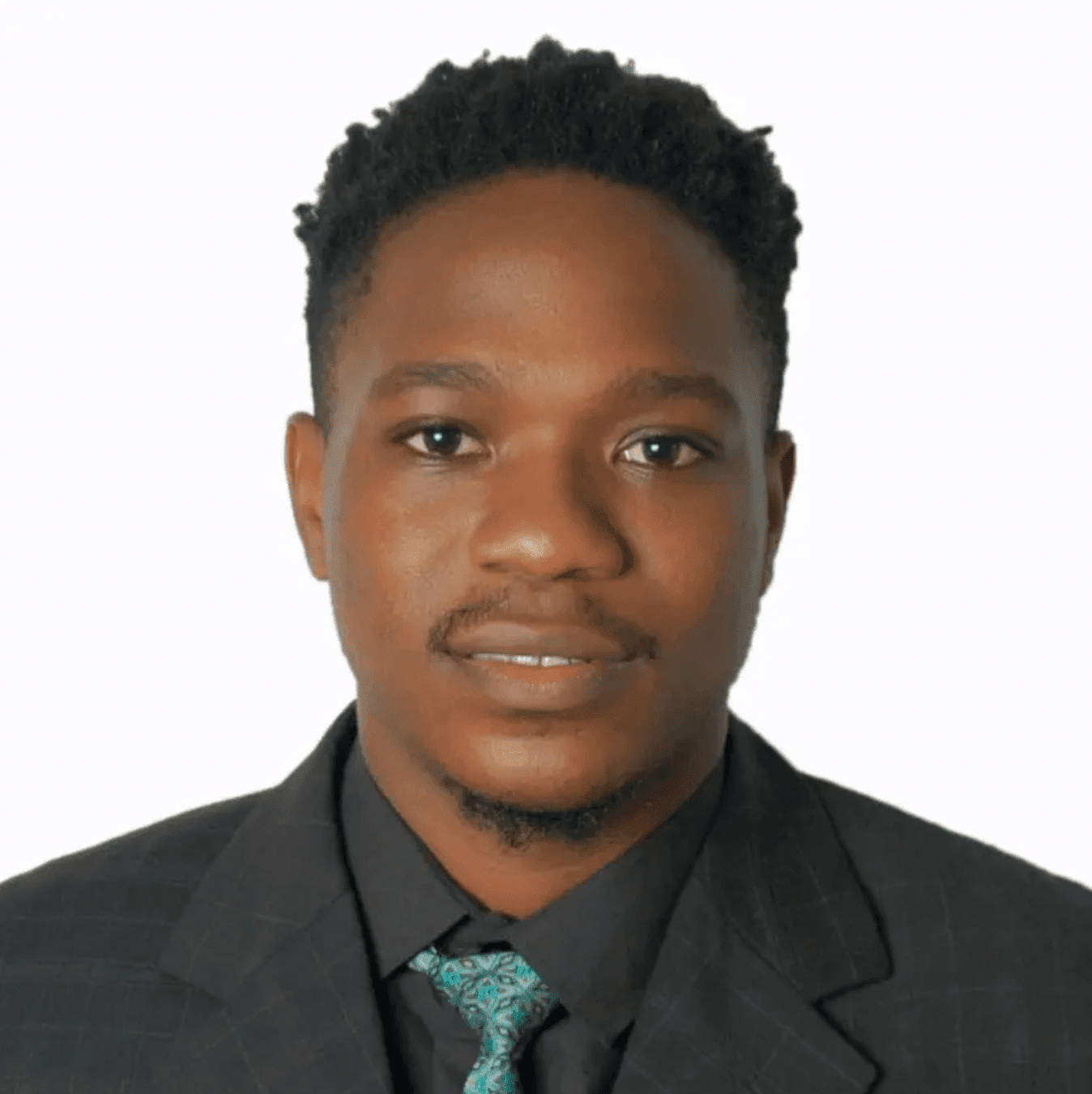
Leave a Reply Cancel reply
Your email address will not be published. Required fields are marked *


PhD Program
Year after year, our top-ranked PhD program sets the standard for graduate economics training across the country. Graduate students work closely with our world-class faculty to develop their own research and prepare to make impactful contributions to the field.
Our doctoral program enrolls 20-24 full-time students each year and students complete their degree in five to six years. Students undertake core coursework in microeconomic theory, macroeconomics, and econometrics, and are expected to complete two major and two minor fields in economics. Beyond the classroom, doctoral students work in close collaboration with faculty to develop their research capabilities, gaining hands-on experience in both theoretical and empirical projects.
How to apply
Students are admitted to the program once per year for entry in the fall. The online application opens on September 15 and closes on December 15.
Meet our students
Our PhD graduates go on to teach in leading economics departments, business schools, and schools of public policy, or pursue influential careers with organizations and businesses around the world.
Best Development Economics Programs
Ranked in 2022, part of Best Social Sciences and Humanities Schools
Development economists are
Development economists are concerned with the state of low-income countries and citizens. They may work in research and policy analysis for government agencies and nonprofits. These are the top graduate schools for development economics. Read the methodology »
- Clear Filters

Ph.D. in Economics
The Ph.D. program in the Department of Economics at Columbia University trains students to do cutting edge research in economics. Students in our program do research in all major areas of economics including microeconomics, macroeconomics, econometrics, international economics, labor economics, public finance, industrial organization, development economics, and urban economics. Our department provides strong training both in theoretical economics and in applied and empirical economics. The Ph.D. program is primarily designed for students that are interested in pursuing a career in teaching and research within academia but is also useful for student interested in certain positions within governments, research organizations, or private businesses.
The first two years of our Ph.D. program is largely devoted to rigorous coursework. After the second year, however, students devote most of their time to their own research under the supervision of faculty advisors. Students in our program generally complete their Ph.D. in 5 or 6 years.
Admission to the Ph.D. program is highly selective. We receive approximately 1,000 applications each year for an incoming class of roughly 25 students. We place a high value on attracting the very best minds, and recruiting members of groups who will both enhance the diversity of research in the field and contribute to the diversity of the university’s academic and professional community.
The Ph.D. program has a long and illustrious history. Alumni of the program include some of the most distinguished economists of the last century – including Nobel Prize winners Kenneth J. Arrow, Milton Friedman, Simon Smith Kuznets, and William S. Vickrey.
- Program Description
- Admissions Information
- Placement Information
- Student Life
- Frequently Asked Questions
- Program Requirements
- Announcements
- Graduate Student Appointments
- Office Hours
- List of 2nd Year Fields
- PhD Administrative Forms
- Job Market Candidates
- Honors and Prizes
- 1st Year Students (2024)
- 2nd Year Students (2023)
- 3rd Year Students (2022)
- 4th Year Students (2021)
- 5th Year Students (2020)
- 6th Year Students (2019)
- Bridge to the Ph.D. Program
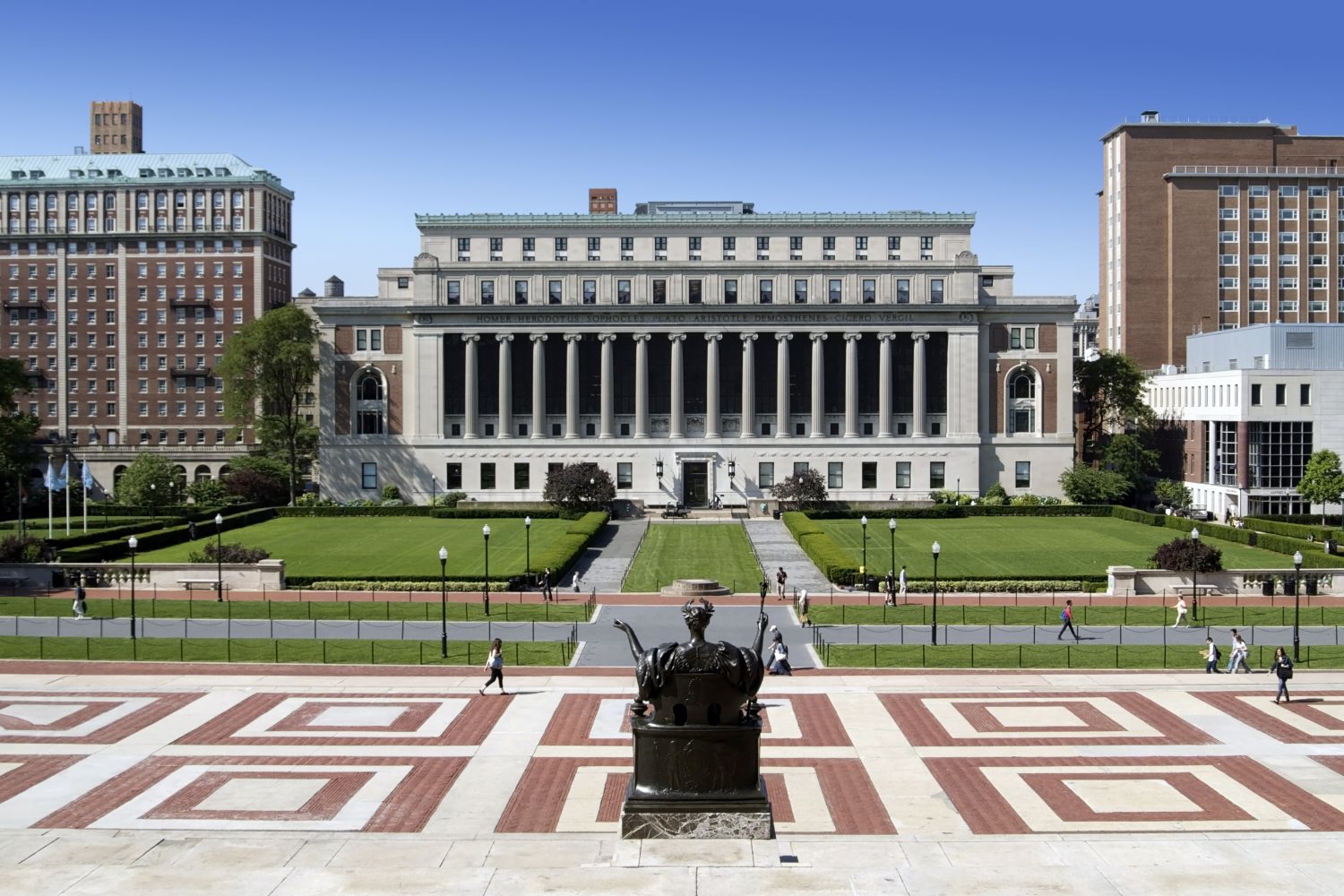
1022 International Affairs Building (IAB)
Mail Code 3308
420 West 118th Street
New York, NY 10027
PhD in Economics
You are here: american university college of arts & sciences economics phd in economics.
- Request Info
Are you interested in…
Explore more.
Are you interested in...
202-885-3770
Fax: 202-885-3790
Kreeger , Room 104 on a map
Back to top
PhD in Economics At a Glance
- 45 credit hours of course work, completed in as little as 2.5 years.
- Study diverse theoretical perspectives, including post-Keynesian, intuitionalist, evolutionary, and feminist economics.
- Tailor your field coursework to best match your research interests.
- Designated as a STEM degree program
- Program Director: Professor Nathan Larson .
Tailor Your Degree to Your Research Interests
Offering a combination of rigorous technical training and a focus on policy-relevant research, our PhD in Economics will prepare you for careers in academics, research, and government. Our students master economic theory, statistical methods, and applied field knowledge. Then, through the dissertation-writing process, they develop the ability to formulate and empirically answer economic questions.
- Diverse Perspectives : In addition to a strong foundation in macro and micro theory and econometrics, students learn a more diverse perspective on economics through required courses in economic thought and economic history, as well as optional courses in heterodox theoretical models of economics, including post-Keynesian, intuitionalist, evolutionary, and feminist economics.
- Flexibility : Students choose four applied field courses that best fit their research interests. The department offers a wide selection of concentrations, including courses in development, gender, international, labor, macro/monetary, and other applied micro topics.
- Preparation : Students must successfully pass one comprehensive exam at the end of their first year and produce a journal-quality research paper by the end of their third year. The third-year paper typically serves as a key component of the dissertation, giving students an advanced start on the dissertation writing process.
See complete Admissions and Program Requirements .
Faculty Dedicated to Your Success
At AU, you will take classes from and work with a diverse group of esteemed economists and highly cited scholars who are engaged with practitioners and policymakers around the world. Their wide-ranging research and publications , along with the variety of methodological approaches they use, create a rich environment for innovations in theory and empirical studies.
Our research centers, including the Program on Gender Analysis in Economics and Infometrics Institute , host guest scholars and research projects, further enhancing the opportunities for graduate students. By working as research assistants and teaching assistants, PhD students gain valuable experience and mentorship in an academic setting.
Throughout their third year and into the fourth, students work closely with a faculty member of their choosing on their third-year paper and dissertation proposal, eventually adding other experts to their dissertation committee to gain additional insights and expertise. Through this process, students develop lasting collegial, and productive relationships with faculty, classmates and economists at DC-area institutions, often co-authoring and publishing.
Launch Your Career Amongst Top Economists
The Washington metropolitan area employs over one-third of all economists in the country. The array of intellectual and professional opportunities offered by the nation's capital make American University the ideal place to study economics. The department's strategic partnerships and our faculty's relationships with nearby institutions will help you make the best use of those opportunities.
Internship and employment opportunities:
- The World Bank
- International Monetary Fund
- Research institutes
- Think Tanks and NGOs
- US Treasury, Labor, and Commerce Departments
Economics PhD graduates are well qualified for careers in academia, government agencies, and international organizations. Our students receive career mentorship and placement services that lead to careers in public policy, academia, and government, both domestically and abroad.
Many of our graduates go on to academic posts at universities such as the Saint Louis University, the University of Vermont, University of Wisconsin-La Crosse, and Franklin College. Domestically, graduates have served in congress and government agencies, including the Bureau of Economic Analysis, the Department of Commerce, and the Department of Labor. Our alumni working outside of the US have founded research institutions and consulted for major organizations such as CGIAR-CIP and the United Nations.
Read more career information about AU economics alumni.
See the 2017-8 list of job market candidates .
News & Notes
See abstracts from the 2024 Third Year Paper Conference .
Research Seminar Series Wednesdays at noon.
- PhD candidate Amy Burnett Cross received an EHA Dissertation Fellowship from the EHA Committee on Research in Economic History
- PhD student Danielle Wilson was awarded an Economic History Association grant for archival research on Mexican Railroads.
- PhD student Aina Puig's short essay, " The Unequal Effect of Interest Rates by Race, Gender, " was published in the San Francisco Fed's Economic Letter.
- Professor Bernhard Gunter and PhD students Bong Sun Seo & Farah Tasneem were awarded the International Award for Excellence for their article on the change in labor force participation rates during periods of globalization and marginalization.
Student Spotlights
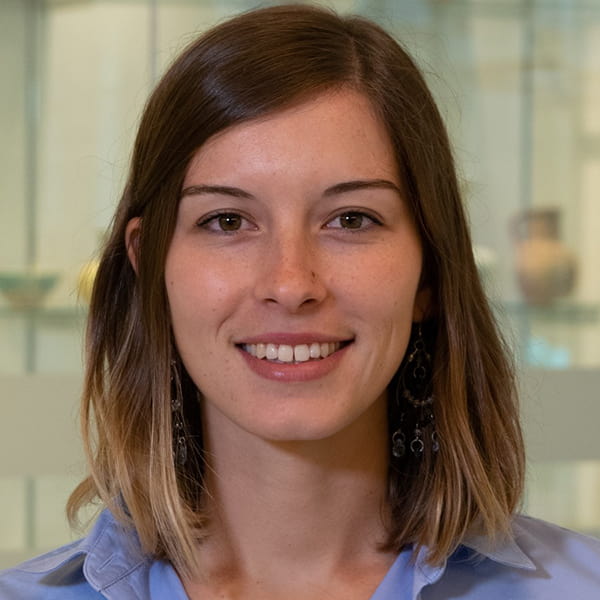
More about Aina
San Francisco Federal Reserve Board’s essay contest called for papers studying economic impacts of gender and racial inequalities. As a winner, Aina’s paper will be published in the Federal Reserve Board’s Economic Letter and will have the opportunity to participate in a 6-week summer research program.
Aina’s paper focused on the impact of monetary policy, through interest rates, on spending patterns among types of U.S. households—those with mortgages, those with women versus men as head of household, and those headed by White versus Black people. By building on her interest in macroeconomic inequality topics with direct policy implications, she intended (and continues to intend) to fill a gap in the literature, adding to the income inequality narrative by bringing gender and racial inequalities to the forefront of discussion.
Through this project, she was able to not only establish the impact of monetary policy shocks on consumption patterns, but also inform the Federal Reserve Board of these distributional impacts. When discussing her research, Aina states that “promoting equal opportunity and understanding the different impacts of policies can help policymakers create policies that promote economic growth while benefitting all groups’ well-being in society.”
Her interest in analyzing inequality topics through lens of distributional effects of macroeconomic policies came to life during her research for this paper and “ties directly into [her] plans for [her] dissertation…, a good starting point for [her] future research.”
Vasudeva Ramaswamy

More about Vasudeva
Economics PhD candidate Vasudeva Ramaswamy credits American University with helping him zero in on his area of research interest and for equipping him with the tools to explore and contribute to his field.
During his time at AU, Vasu spent two summers working with the World Bank, studying the impact of agricultural aggregators in East Africa — specifically, how they provided income and security to farmer communities.
Vasu’s dissertation considers the effects of the Federal Reserve Bank’s actions on household inequality. Who gains and who loses when the Fed increases (or decreases) interest rates? And how do these effects propagate through the economy? Because business income and profits play a key role in household inequality, Vasu looks at how businesses respond to the actions of the Fed.
After he earns his PhD, Vasu says he would love to be able to continue researching the importance of economic heterogeneity in monetary policy transmission. “I am particularly grateful for AU’s faculty, who are leading experts in their field and approachable and encouraging as mentors,” he adds. “I am equally grateful for the rest of my PhD cohort, who are a brilliant and motivated group. I am learning from them continually.”

Elissa Cohen
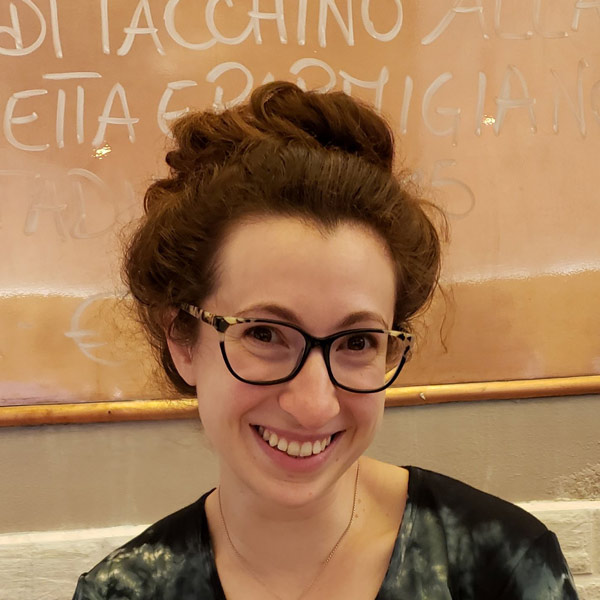
More about Elissa
Economics PhD candidate Elissa Cohen received an NSF grant to pursue her research about assumptions people make about risk and, building off an idea from a previous project, Elissa continues her interest in the Value of Statistical Life in this one to question the validity of how VSL is used and estimated. In doing so, she contributes to development of a more complete theory of how perceptions of risk guide decision making.
Elissa asks three questions: (1) Is the construct validity of the VSL consistent across measurement approaches? (2) Do people value the mitigation of varying types of fatality risk differently across domains? (3) Do people accurately comprehend the probability of death in a given setting?
To answer these questions, Elissa uses discrete choice experimental (DCE) designs, self-report surveys, and machine learning techniques to evaluate the validity of the VSL as an assessment how people’s risk assessment shapes behavior.
This research improves the understanding of how people perceive fatality risk across domains and how perceptions impact choices about risk exposure. With this research comes the potential to reshape how regulatory agencies construct their aggregated VSL estimates for future cost-benefit analyses, influencing policy decisions and allocation of scarce federal resources.
As she thinks about impact and the research space she can contribute to and develop, Elissa comments, “AU has definitely helped me refine the types of questions I am interested in answering…. I see myself continuing to explore and test feedback loops between emergent human behaviors and macro-level policy decision-making.”
Amy Burnett Cross
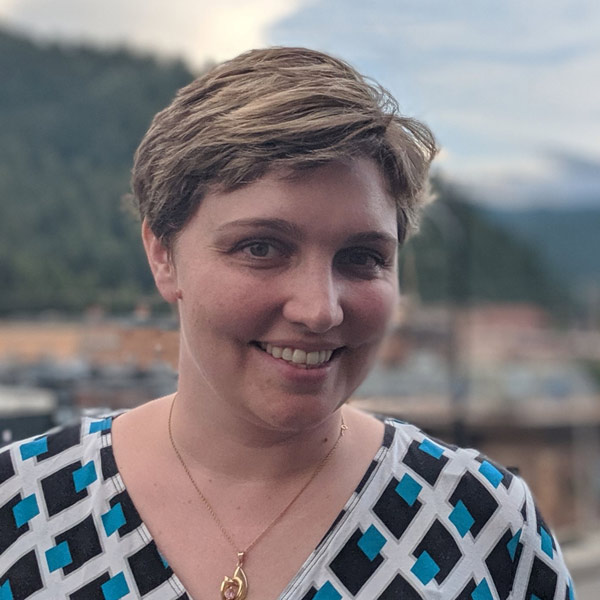
More about Amy
Amy Burnett Cross has been selected as one of the three NBER Pre-Doctoral Fellows in the Gender in the Economy program to support her dissertation research on the influence of military policy on the sorting of women into occupations. Through this research, she is able to include her knowledge from AU’s Program on Gender Analysis in Economics as well as her understanding that by bringing more insight from conservative institutions into her research realm, she could enhance the policy space of gender equity.
As she continues her career, Amy desires to conduct research that is directly applicable to policymakers, and through her research on this project, Amy has the chance to do this in addition to engaging with economic history and begin to invest more time in the historical arc of military policy and gender dynamics.
She has three focuses for her dissertation project: (1) evaluate the impact of lifting the ban on women in combat (in 2013) on civilian occupational desegregation; (2) measure the extent to which gender desegregation of the Army (in 1977) signaled a shift in the appropriate role of civilian women at work; and (3) assess whether the structure of the U.S. draft in WWI (in 1917) contributed to the development of the male breadwinner norm.
Amy’s work aims to provide evidence that policy changes can influence social norms constraining women’s work and occupational segregation, particularly in discovering how policies regarding women’s participation in the military go on to influence gender gaps in civilian labor market outcomes. In doing so, Amy also seeks to contribute to the research of information asymmetry as a cause for occupational segregation—does military gender desegregation function as a reduction of information asymmetry?
With the support and accommodation of her peers, professors, and advisor, Mary E. Hansen, Amy has been able to focus on her academic excellence and develop close friendships and bonds during her journey at AU. In discussing her work in gender economics and the community at American University, Amy offered, “AU attracts women economists and I have found some truly excellent ones here.”
Please send me information about PhD in Economics
It looks like you already used that name and address to request information for one or more AU graduate program(s).
If you have not previously requested AU graduate program information, create a new request

PhD in Economics
The doctoral program in Economics at Rice University provides rigorous training in economic theory and econometrics in order to prepare students for research careers in economics. In 2014, the department launched the Rice Initiative for the Study of Economics (RISE) in order to enhance its role as a leading center of economic research. Since then, the department has hired ten new faculty. In addition, it has established itself as a leading institution for structural empirical microeconomics, an approach to economic analysis that combines economic theory and econometrics to address substantive economic issues. The small size of the program, approximately 45 graduate students working with 24 full-time faculty, promotes close faculty student interactions and collaboration, as well as strong relationships among the students.
Effective 2021-2022 academic year, all students receiving MA or PhD degrees in Economics will also receive Major Concentration in Econometrics and Quantitative Economics, and will be able to apply for a 24-month STEM extension of F-1 Optional Practical Training (OPT).
At a Glance
Full-time faculty working with students : 24
Students : 55 doctoral students
Number Admitted : 7-10 students each year
Fields of Study : Theoretical and Applied Econometrics, Applied Microeconomics, Economic Theory, Financial Economics, Game Theory, Political Economics, Energy Economics, Development Economics, Empirical Industrial Organization, Labor Economics, Macroeconomics, Public Finance, Health Economics.
Degrees awarded : PhD in Economics with a Major Concentration in Econometrics and Quantitative Economics (STEM designated) , Ph.D. in Economics with an M.A. in Statistics , and an additional Major Concentration in Finance . An M.A. degree is awarded to students pursuing Ph.D. in Statistics when they complete the requirements for M.A. in Economics with a Ph.D. in Statistics . It is also awarded to students who complete all the requirements for the Ph.D. in Economics working toward their dissertation.
Learn More about the Economics Doctorate Program
Monday, May. 9, 2022
Monday, Jan. 11, 2021
Friday, Jun. 5, 2020
Monday, Feb. 10, 2020
- Utility Menu
44d3fa3df9f06a3117ed3d2ad6c71ecc
- Administration
econ-hero-6.jpg

The doctoral program in Economics at Harvard University is one of the leading programs in the world. Supported by a diverse group of faculty who are top researchers in their fields and fueled by a vast array of resources, the PhD program is structured to train and nurture students to become leading economists in academia, government agencies, the technology industry, finance and banking, and global policy organizations.
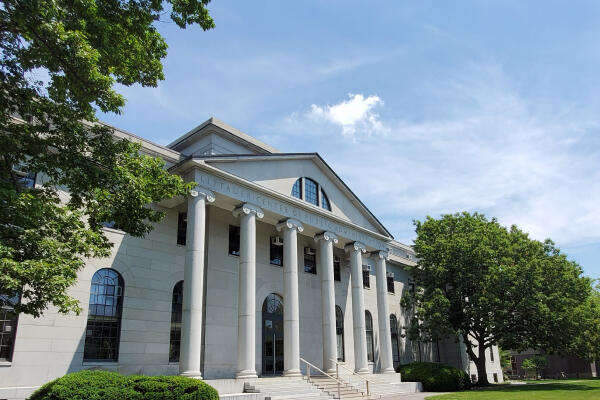
Harvard University and the Department of Economics are regularly ranked amongst the top programs in the world, and the consistency of success among our graduates is inspiring. We have educated several foreign heads of state, Nobel Prize Winners, Clark Medal Winners, MacArthur Fellowship Recipients - many of whom have returned to Harvard to offer their expertise and brilliance in shaping and nurturing our students. Learn more about where we place our graduates and explore our Program to find out if a PhD in Economics is a good fit for you.

Program Requirements
As a PhD student in the Economics program, students will spend the first two years in the program engaged in rigorous coursework designed to develop a foundational understanding of economics. In the following years, students transition to research under the guidance of strong faculty mentorship and participate in field workshops. In the final year, students conduct independent research and complete a dissertation.

The department of Economics at Harvard University is committed to seeking out and mentoring scholars who wish to pursue a rigorous and rewarding career in economic research. Our graduates are trailblazers in their fields and contribute to a diverse alumni community in both the academic and non-academic sectors. We invite you to learn more and apply to the PhD program in Economics.

Financial Support
Students have access to a variety of funding and financial support opportunities.
- Research Funding
- Teaching Fellowships and assistants
- Additional external and internal resources
Learn more about financial support
Upcoming Events
Econ 3012 graduate student workshop in labor economics and public economcs, location: .
Joseph Melkonian (Harvard University)
Simon Essig Aberg (Harvard University)... Read more about ECON 3012 Graduate Student Workshop in Labor Economics and Public Economcs
ECON 3012 Graduate Student Workshop in Labor Economics and Public Economics
Andres de Loera (Harvard University)
Ruru Hoong (Harvard University)... Read more about ECON 3012 Graduate Student Workshop in Labor Economics and Public Economics
ECON 3012 Student Graduate Workshop in Labor Economics and Public Economics
James Stratton (Harvard University)
Jennifer Walsh (Harvard University)
Contact: Ursula Ferraro / [email protected] Directions to Littauer Center
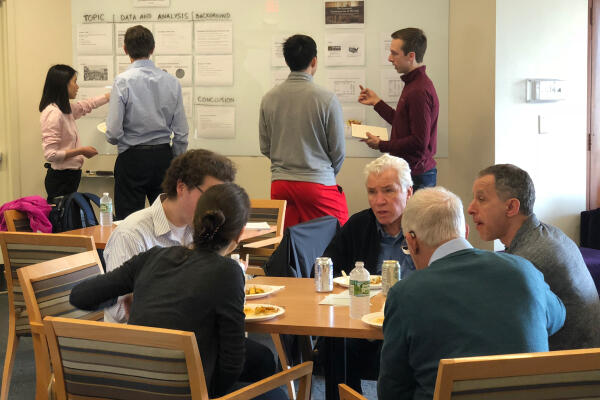
View all Workshops

View all Seminars

Doctor of Economic Development (DED)
The Doctor of Economic Development (DED) is a professional doctorate offered jointly by the Department of Economics, Applied Statistics & International Business in the College of Business and the Department of Agricultural Economics and Agricultural Business (AEAB) in the College of Agricultural, Consumer and Environmental Sciences.
This doctoral degree program is primarily intended to provide advanced training for economic development professionals rather than academic economists. In a sense, the Doctor of Economic Development can be seen as the link between academic research in economic development and "real world" economic development problems.
Degree Requirements
Please visit the DED Program page for more information about this degree.
- DED Degree Requirements - NMSU Catalog
Students interested in pursuing this program should contact Dr. J. Michael Patrick , the DED Program Director .
Office: Gerald Thomas Hall, Room 343 Office phone: (575)646-5682 Cell phone: (575)202-4253 Fax: (575)646-3808 E-mail: [email protected]
The College of Agricultural, Consumer, and Environmental Sciences (ACES) is an engine for economic and community development in New Mexico, improving the lives of New Mexicans through research , academic programs , and extension . Learn more about our mission and programs.
NMSU and USDA are equal opportunity/affirmative action employers and educators: Read the full non-discrimination and accommodation statements . https://aces-about.nmsu.edu/nondiscrimination.html
Locate Your County Extension Office▸ Statewide Ag Science Centers▸ ACES Faculty & Staff Directory▸ Extension Publications▸ Questions? Contact Us▸ -->
For Employees▸
Find Other ACES Social Media▸
- Scroll to Top
Our cookies
We use cookies for three reasons: to give you the best experience on PGS, to make sure the PGS ads you see on other sites are relevant , and to measure website usage. Some of these cookies are necessary to help the site work properly and can’t be switched off. Cookies also support us to provide our services for free, and by click on “Accept” below, you are agreeing to our use of cookies .You can manage your preferences now or at any time.
Privacy overview
We use cookies, which are small text files placed on your computer, to allow the site to work for you, improve your user experience, to provide us with information about how our site is used, and to deliver personalised ads which help fund our work and deliver our service to you for free.
The information does not usually directly identify you, but it can give you a more personalised web experience.
You can accept all, or else manage cookies individually. However, blocking some types of cookies may affect your experience of the site and the services we are able to offer.
You can change your cookies preference at any time by visiting our Cookies Notice page. Please remember to clear your browsing data and cookies when you change your cookies preferences. This will remove all cookies previously placed on your browser.
For more detailed information about the cookies we use, or how to clear your browser cookies data see our Cookies Notice
Manage consent preferences
Strictly necessary cookies
These cookies are necessary for the website to function and cannot be switched off in our systems.
They are essential for you to browse the website and use its features.
You can set your browser to block or alert you about these cookies, but some parts of the site will not then work. We can’t identify you from these cookies.
Functional cookies
These help us personalise our sites for you by remembering your preferences and settings. They may be set by us or by third party providers, whose services we have added to our pages. If you do not allow these cookies, then these services may not function properly.
Performance cookies
These cookies allow us to count visits and see where our traffic comes from, so we can measure and improve the performance of our site. They help us to know which pages are popular and see how visitors move around the site. The cookies cannot directly identify any individual users.
If you do not allow these cookies we will not know when you have visited our site and will not be able to improve its performance for you.
Marketing cookies
These cookies may be set through our site by social media services or our advertising partners. Social media cookies enable you to share our content with your friends and networks. They can track your browser across other sites and build up a profile of your interests. If you do not allow these cookies you may not be able to see or use the content sharing tools.
Advertising cookies may be used to build a profile of your interests and show you relevant adverts on other sites. They do not store directly personal information, but work by uniquely identifying your browser and internet device. If you do not allow these cookies, you will still see ads, but they won’t be tailored to your interests.
Course type
Qualification, university name, phd degrees in development economics.
11 degrees at 8 universities in the UK.
Customise your search
Select the start date, qualification, and how you want to study
About Postgraduate Development Economics
Development economics is a branch of economics that focusses ondeveloping countries and regions. The main aim is to figure out what helps these regions to grow economically, reduce poverty and make people's lives better overall. Experts in this field study how money is allocated in education, healthcare, roads and buildings and the systems that help these countries to function.
In the UK, there are more than 10 PhD options in development economics. Entry requirements for this doctoral programme requires a master's degree in economics or a related field, demonstrating strong quantitive skills and an understanding of development economics, as well as a solid research proposal.
Studying a PhD in development economics means studying advanced ideas and practices related to how economies grow, especially in the context of global challenges. Those who complete this programme can go on to have senior jobs as economists or policymakers, working at international research centres.
What to Expect
The PhD programmes involves an in-depth exploration into your chosen area of interest. Your research will likely cover topics like economic theory, international econometrics, poverty reduction strategies, sustainable development and international trade dynamics.
You’ll dedicate a significant amount of time to your thesis, which contributes scholarly research to the field of development economics. The programme includes opportunities for fieldwork, data collection and collaboration with international development agencies and NGOs.
PhD graduates emerge as experts in development economics, with skills in advanced economic analysis, policy formulation and economic research methods. They are sought after by international development agencies, government economic departments, think tanks and higher education institutions.

Related subjects:
- PhD Development Economics
- PhD Applied economics
- PhD Econometrics
- PhD Economics
- PhD Environmental Economics
- PhD Health Economics
- PhD International Economics
- PhD Macroeconomics
- PhD Microeconomics
- PhD Social Economics

- Course title (A-Z)
- Course title (Z-A)
- Price: high - low
- Price: low - high
PhD in Development Studies
Soas university of london.
The Department currently has 52 research students, working on a range of research topics in many parts of Asia, Africa, Latin America and Read more...
- 3 years Full time degree: £4,860 per year (UK)
- 6 years Part time degree: £2,430 per year (UK)
Development Studies - Research, MPhil/PhD
Faculty of engineering & science, university of greenwich.
Our Natural Resource Institute (NRI) in Medway provides an ideal environment for innovative and original research in development Read more...
- 3 years Full time degree: £4,712 per year (UK)
- 4 years Part time degree: £2,356 per year (UK)
PhD International Development by Distance Learning
University of birmingham.
The International Development Department (IDD) is committed to encouraging new thinking in the fields of development and public Read more...
- 3 years Distance without attendance degree: £4,778 per year (UK)
- 6 years Distance without attendance degree
Development Studies, PhD
Swansea university.
A PhD or MPhil in Development Studies at Swansea enables you to pursue a substantial project led by your own passions and interests. It Read more...
- 6 years Part time degree: £2,356 per year (UK)
PhD in Development Economics
The PhD in Development Economics is a research degree offered by the Department of Economics, and is also part of the PhD pathway, Read more...
Development Studies with Reference to Emerging Economies MPhil/PhD
King's college london, university of london.
The Department of International Development (DID) at King's has a different agenda to traditional development studies in the UK and wider Read more...
- 3 years Full time degree: £6,936 per year (UK)
- 6 years Part time degree: £3,468 per year (UK)
Development Studies (IDS) PhD
University of sussex.
The Institute of Development Studies (IDS) transforms the knowledge, action and leadership needed for more equitable and sustainable Read more...
- 1 year Full time degree
- 2 years Part time degree
MRes/PhD International Development
London school of economics and political science, university of london.
This programme offers you the chance to undertake a substantial piece of work that is worthy of publication and which makes an original Read more...
- 4 years Full time degree: £4,829 per year (UK)
PhD in Development Studies by Published Works
Institute of development studies.
Study with the world leaders in development studies and realise your potential to transform the world with our PhD by Published Works in Read more...
- 1 year Full time degree: £4,596 per year (UK)
- 2 years Part time degree: £4,596 per year (UK)
Study with the world leaders in Development Studies and realise your potential to transform the world The Institute of Development Studies Read more...
- 4 years Full time degree
- 6 years Part time degree
PhD in Development Studies by Research
Study with the world leaders in developments studies and realise your potential to transform the world with our PhD by Research. The PhD Read more...
- 3 years Full time degree: £4,596 per year (UK)
- 6 years Part time degree: £4,596 per year (UK)
Course type:
- Distance learning PhD
- Full time PhD
- Part time PhD
Qualification:
Related subjects:.
- Research Centers
- Academic Programs
- Princeton University
- News & Activities
- Prospective Majors
- Major Requirements
- Course Selection
- Independent Work
- Other Rules and Grading Guidelines
- Economics Statistical Services (ESS)
- Minors and Programs
- Study Abroad and Internship Milestone Credit
- Funding, Research Assistant, and Career Opps
- Common Questions
Ph.D. Admissions
Current Students
- Course Offerings
- Job Market and Placements
- Graduate Student Directory
Graduate Program
Ph.d. studies at princeton economics.
The Ph.D. program at Princeton Economics is one of the premier economics programs in the world. The small number of students admitted each year receive training in an exceptional research environment, supported by faculty members who are working at the forefront of research in their fields.
Admission to the program is extremely selective. Each year, the department receives approximately 800 applications for a class of 20 to 25 students. Students come from diverse backgrounds and from dozens of countries around the globe.
Princeton provides all admitted Ph.D. students tuition and fellowship support for the academic year. Admitted students also receive fellowship support through the summer months so they can continue their study and research when classes are not in session.
The Economics Department at Princeton does not offer a Master’s Degree. Students looking for information about the Master in Finance can learn more on the Princeton Bendheim Center for Finance website .
Job Market Placements
Jump to navigation
Search form

- History of Women Faculty in Economics
- Chairs & Managers
- Research Centers
- Publications
- Year-end letter: Berkeley Economics
- Faculty Profiles
- In Memoriam
- Graduate Program
- Current Students
- Graduate Profiles
- 2023-2024 Job Market Candidates
- 2023-2024 Ph.D. Job Market Infopage
- Undergraduate Program
- Course Enrollment
- Prospective Majors
- Current Majors
- Student Organizations
- Commencement
- Course List
- This Week's Seminars
- Next Week's Seminars
- Spring 2024 Economics Classes
- Summer 2024 Economics Classes
- Charter Hill Society for Economics
- Submit a note
- Alumni Notes
Ph.D. in Economics
The Ph.D. program at Berkeley is designed for students interested in pursuing advanced study and conducting original research in Economics. The Ph.D. degree is awarded in recognition of the recipient's qualifications as a general economist and of the ability to make scholarly contributions in fields of specialization. Additionally, the Economics Ph.D. program is residential, there is no remote enrollment option.
In advancing to the Ph.D. degree, students pass through two major stages:
- Preparation for candidacy typically takes two to three years. During the first two semesters, students take courses to achieve competence in econometric methods, methods of economic history and fundamentals of microeconomic and macroeconomic theory. During the next two years, students prepare for examination in two fields of specialization of their choosing, prepare a dissertation prospectus, and take an oral examination. When these steps are completed, students are advanced to candidacy.
- Completion of a dissertation after advancing to candidacy typically takes one to two years. The dissertation must be based on original research and represent a significant contribution to the body of Economic knowledge.
The entire process takes approximately five to six years, although some students are able to complete the program in less time. Below is an overview of the program requirements by year and other pertinent information.
The UC Berkeley College of Letters & Science provides students helpful resources, links, and tools for successfully completing the Ph.D. in Economics.
ECONOMICS GRADUATE STUDENT SERVICES
The economics student services mission is to advise our students holistically by providing a high standard of service in a supportive and collaborative environment. professional and peer advisors work as a team to provide accurate information in a timely manner. we partner with faculty to assist students in engaging with the campus and the global economic community. we value fairness, diversity, and the important roles our students, faculty, and staff in the department of economics play at the university of california, berkeley..
If you or someone you know is experiencing financial, food, housing or other basic needs challenges - you can find support and services at: http://tinyurl.com/UCB-BNC-C19 .
Meet the members of the Economics Graduate Student Services advising team!
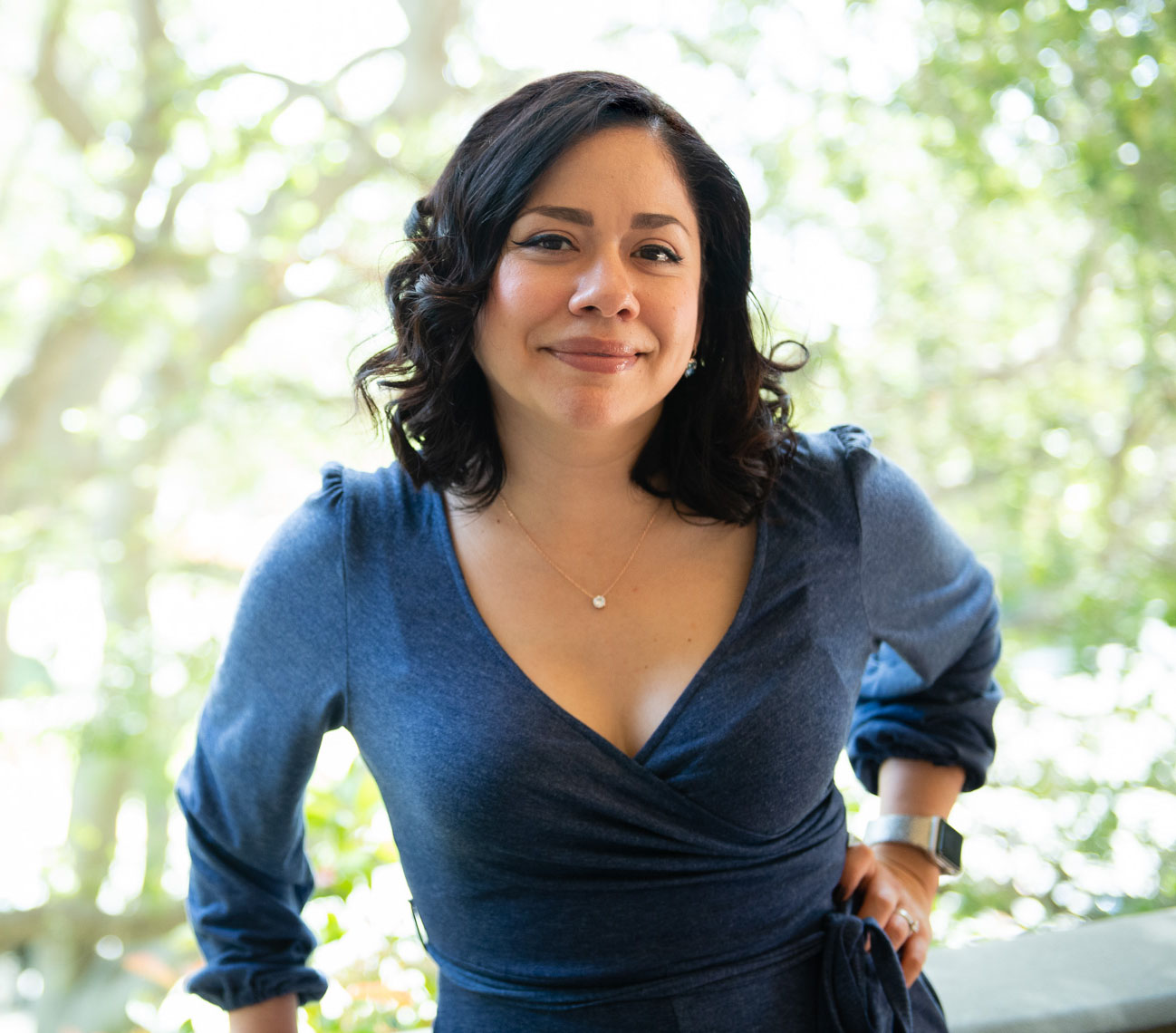
Graduate Office Address:

About the Ph.D. Program
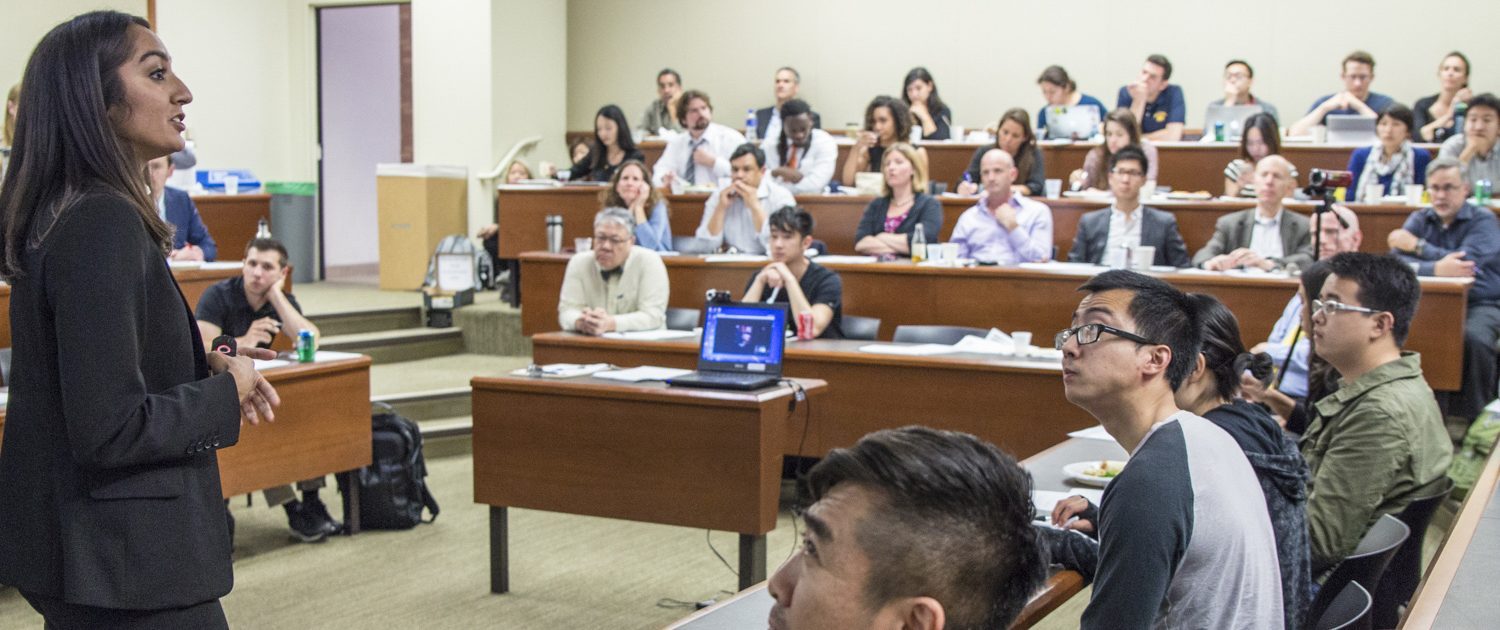
The Ph.D. Program in Economics at UCLA prepares students for careers as economists in academia, business and government. The program combines rigorous work in economic theory and careful study of real-world problems and institutions. Graduates from this program work at major universities around the world, national and international government agencies, banks, research centers and in private businesses. Some of our graduates have achieved great prominence, such as William Sharpe , who earned both his B.A. and Ph.D. degrees at UCLA, and was co-recipient of the 1990 Nobel Prize in Economics for his work on the capital asset pricing model.
The department includes internationally recognized scholars in economic theory, econometrics, and all the major applied fields. These outstanding scholars form one of the foremost departments of economics in the world.
The Economics Department is situated within one of the world’s most youthful and vibrant universities. Founded in 1919, UCLA first developed into a major university in the 1950’s. After so short a history, the university was ranked second in the United States among public research universities by the Conference Board of Associated Research Councils in 1982. Thirty-one of its Ph.D. programs are currently ranked in the top 20 in their field–third best in the nation.
The Ph.D. is the degree objective of the graduate program. This degree is awarded to students who demonstrate professional competence by passing written qualifying exams and by completing a major piece of individual research (the Ph.D. dissertation).
Preparation for the qualifying exams through coursework and independent study occupies most student time for the first two years. Thereafter the focus shifts to independent research and finally to the writing of a Ph.D. dissertation. Research in progress by our graduate students as well as our faculty is presented at workshops that meet weekly throughout the academic year. Currently, the Dept. has workshops in Theory and Mathematical Economics, International and Development Economics, Labor and Population Economics, Business Organization and Regulation Economics, Economic History, Econometrics, and Monetary Theory. In addition, many graduate students work as research or teaching assistants for faculty members. The normal time to degree is six years.
This degree program classifies as STEM (CIP Code 45.0603: Econometrics and Quantitative Economics).

UCLA Department of Economics
8283 Bunche Hall Mail Stop: 147703 Los Angeles, CA 90095
Campus Resources
- Academic Calendar
- Maps, Directions, Parking
- University of California
- Terms of Use
- Injury & Illness Prevention Program
Internal Resources Manager’s Manual Admin Login Webmail (O365 Server) Contact Webmaster
- About the Department
- Administration
- Board of Visitors
- Department Newsletters
- Ladder Faculty
- Courtesy Faculty
- In Memoriam
- Recent Publications
- Research Spotlight
- Economics Major
- Business Economics Major
- Declare our Majors
- Degree Planning
- Benjamin Graham Value Investing Program
- Enrollment Procedures
- Frequently Asked Questions
- Student Wellness & Community
- Department of Economics Commencement 2024
- Course Descriptions
- Economics Class Schedule
- Learning Objectives
- Common Syllabus
- Non-UCLA Course Credit
- Econ Summer Courses for 2024
- Departmental Honors
- Departmental Scholar
- Departmental Scholarships
- Career Pathways
- Fellowships
- Career Center
- Internships
- Research Opportunities
- Preparing for a Ph.D. in Economics
- EDI Courses in Economics
- EDI Research
- EDI Resources for Students
- Incoming Undergraduates
- Why Study Economics?
- Freshmen Information
- Transfers Information
- Economics Courses
- Graduate Handbook
- Graduate Student Awards
- Standards and Procedures
- Second Year
- Thesis Writing
- TA Resources
- Job Market Prep
- Grad Econ Association
- Computing Resources
- Placement History
- Job Market Candidates
- Graduate Counseling Office
- Commencement videos
- Alumni Career Engagement
- UCLA Alumni Affairs
- Update Your Information
- Alumni Interviews
- Women in Business
- Proseminars
Jump to navigation
Community Development and Applied Economics
- Undergraduate Programs
- Community and International Development
- Community Centered Design Major
- Community Entrepreneurship
- Public Communication
- CDAE Minors
- Internships
- Dual Degree Program - Vermont Law & Graduate School
- Graduate Programs
- Master of Science in CDAE
- Master of Public Administration
- Master of Science in CDAE - Accelerated
- Master of Public Administration - Accelerated
- Peace Corps Coverdell Program
- Certificate of Graduate Studies in Community Resilience and Planning
Ph.D. in Sustainable Development Policy, Economics and Governance
- Courses in CDAE
- Faculty and Staff
- Advising and Student Support
- Internship Program
- Peace Corps at UVM
College of Agriculture and Life Sciences

The Sustainable Development Policy, Economics and Governance (SDPEG) Ph.D. program offers a transdisciplinary doctoral education in the policies, practices and theories of sustainable development. By offering a core curriculum that includes applied policy and economic analysis, governance and process design, social science methods, and professional skills development, the program produces graduates capable of conducting original, applied research that is designed to support sustainability and resiliency across social, ecological, and technical systems.
This degree will prepare students to assume positions as policy leaders in government, higher education, public and private sector organizations, non-governmental organizations, and research institutes with the expertise and vision to inform local, state, national, and international policy.
Asim Zia, Director and Professor of Public Policy and Computer Science
Travis Reynolds, Associate Professor
Dan Tobin, Associate Professor
Trisha Shrum, Assistant Professor
David Conner, Professor
Josh Farley, Professor
Sarah Heiss, Associate Professor
Qingbin Wang, Professor
Anaka Aiyar, Assistant Professor
Joe Ament, Assistant Professor
Kate Mays, Assistant Professor
Benjamin Dangl, Lecturer
Edward McMahon, Adjunct Associate Professor
Pablo Bose, Professor
Stephanie Seguino, Professor Emerita
Gregory Rowangould, Associate Professor
Donna Ramirez-Harrington, Associate Professor
Brian Beckage, Professor
Elizabeth Doran, Research Assistant Professor
Jane Kolodinsky, Professor Emerita
Christopher Koliba, Professor Emeritus
Kelsey Gleason, Assistant Professor
Dana Rowangould, Assistant Professor
Degree Requirements
Milestones, guidelines and timeline to degree completion.
Minimum Degree Requirements
The degree requires a total of 75 credits. A minimum of 51 credits must be completed in residence. The residency requirement is completed by courses that:
1. are taken for graduate credit through the University of Vermont, and
2. are taken after the student has been admitted to the Graduate College.
The program’s course of study includes:
1. 15-credit core 2. Up to 24 transfer credits from prior master’s degree (12 out of 24 transferable credits must meet pre-requisite requirements in statistical methods, research methodology, economics and policy process theory) 3. 15 credits of a pre-approved Certificate of Graduate Study or a customized sequence of advisor-approved graduate level elective courses 4. 21 dissertation research credits
15 credit core includes:
Requirements for Advancement to Candidacy for the Degree of Doctor of Philosophy
Students will advance to candidacy following completion of the core curriculum, passage of a written and oral comprehensive exam, passage of the written dissertation and oral dissertation defense exam, and acquisition of teaching experience in the field of sustainable development policy, economics and governance. A GPA of 3.0 must be maintained.
Tuition Information
International Student Admissions
Funding Opportunities
Meet the Students
Request Information
Application Procedures & Admissions Requirements
We are no longer accepting applications for Fall 2024. Please check back in September 2024 for updated admissions guidelines.
ADMISSIONS REQUIREMENTS INCLUDE:
- Master’s degree in public policy, public administration, economics, natural resources, engineering, ecology, food systems, political science or a closely related field, including social sciences, professional fields, and STEM
- Completion of graduate level course in statistical methods
- Completion of graduate level course in research methodology
- Completion of graduate level course in economics
- Completion of graduate level course in policy process theory
- Resume or Curriculum Vitae
- Applicants must submit evidence of experience and success in the research process such as writing sample(s), and/or evidence of research experience(s) (e.g., theses, term papers, class projects, research reports and/or other descriptions of past research experience from academic or professional lives).
- The Graduate Record Exam (GRE) is optional.
- For international students whose native language is not English or who have not completed undergraduate or master’s degrees in English, scores from the Test of English as a Foreign Language (TOEFL), the English Language Testing System (IELTS), or Duolingo must be submitted.

College of Professional Studies
Commerce and economic development.
The Master of Science in Commerce and Economic Development, a STEM-designated program, integrates economics, leadership, technology, and public policy to prepare students for a career in the private or public sector.
Globalization has created a borderless economy with a host of new opportunities and challenges for those engaged in commerce and economic development. While global markets offer exciting growth prospects, navigating the world stage requires in-depth knowledge of the financial, regulatory, and economic environments and institutions that affect the global economy and international trade.
To meet the need for both insight and skills development, Northeastern University’s College of Professional Studies—in collaboration with Northeastern University’s College of Social Sciences and Humanities—offers the Master of Science in Commerce and Economic Development, which integrates an applied economics study of information, institutions, and innovation designed to develop and hone analytical skills to support private and public decision-making.
More Details
Unique features.
- Online program designed for working, midcareer professionals
- Graduates are positioned for jobs in government, international organizations, nonprofit organizations, universities, or the private sector
- STEM-designated graduate degree
- Required capstone project
- Financial Economics concentration prepares students for the CFA Institute Level I exam
Program Objectives
- Translate economic theory and classroom materials into core competencies
- Apply quantitative skills in the areas of economics, economic theory, policy analysis, and research
- Learn to set prices and output levels
- Use conceptual and mathematical tools to examine fluctuations in employment, prices, and economic growth
- Develop skills in data collection, estimation, and results interpretation
- Apply theories of economic growth, technology, structural changes, industrialization, factor proportions and prices, trade, population, and income distribution
- Evaluate labor markets and the role of human capital
- Assess how art, culture, and entertainment impact economic development
- Analyze the impact of environmental resources on commerce and economic development
Career Outlook
Several major trends—policy convergence, e-commerce expansion, and continued international development—are driving the job growth in the fields of international trade and economic development, and career prospects are expected to remain strong. Jobs in economic analysis and international trade are typically well-paying, with individuals holding advanced degrees expected to enjoy the best opportunities.
Unique Transfer Opportunity
About the CFA, CFP, FRM and PRM Certification Transfer Credit Opportunities: Why consider a Master of Science in Commerce and Economic Development from Northeastern University? We recognize the knowledge and financial competencies demonstrated by those who have earned their CFA, CFP, FRM and PRM certifications. As a result, credential-holders have the unique opportunity to accelerate through a Northeastern University degree.
Successful applicants for a master's degree program with their CFA® certification:
- Will receive 10 credit hours of transfer credit—a 22% savings in tuition.
- Transfer credit is awarded for the following courses: CED 6050 (Commerce & Economic Development), CED 6240 (Financial Ethics), FIN 6161 (Investment Analysis).
Successful applicants for a master's degree program with their CFP™ certification:
- Will receive 11 credit hours of transfer credit—a 24% savings in tuition.
- Transfer credit is awarded for the following courses: CED 6050 (Commerce & Economic Development), FIN 6102 (Asset & Liability Management), FIN 6161 (Investment Analysis).
Successful applicants for a master's degree program with their FRM® certification:
- Transfer credit is awarded for the following courses: FIN 6102 (Asset & Liability Management), FIN 6161 (Investment Analysis), CED 6250 (Derivatives & Alt. Investments).
Successful applicants for a master's degree program with their PRM™ certification:
Looking for something different?
A graduate degree or certificate from Northeastern—a top-ranked university—can accelerate your career through rigorous academic coursework and hands-on professional experience in the area of your interest. Apply now—and take your career to the next level.
Program Costs
Finance Your Education We offer a variety of resources, including scholarships and assistantships.
How to Apply Learn more about the application process and requirements.
Requirements
- Online application
- Statement of purpose (500–1000 words): Identify your educational goals and expectations of the program. Please be aware that Northeastern University's academic policy on plagiarism applies to your statement of purpose.
- Professional resumé
- Unofficial undergraduate transcripts; official transcripts required at the time of admission
- Two letters of recommendation from individuals who have either academic or professional knowledge of your capabilities such as a faculty member, colleague, or mentor, preferably one from your current employer
- Official associate or bachelor's degree transcript from an accredited college or university in the U.S., stating degree conferral and date
- TOEFL, IELTS, PTE, Duolingo, or NU Global Exam scores
Are You an International Student? Find out what additional documents are required to apply.
Admissions Details Learn more about the College of Professional Studies admissions process, policies, and required materials.
Admissions Dates
Our admissions process operates on a rolling basis; however, we do recommend the application guidelines below to ensure you can begin during your desired start term:
Domestic Application Guidelines
International Application Guidelines *
*International deadlines are only applicable if the program is F1 compliant.
Industry-aligned courses for in-demand careers.
For 100+ years, we’ve designed our programs with one thing in mind—your success. Explore the current program requirements and course descriptions, all designed to meet today’s industry needs and must-have skills.
View curriculum
Northeastern's signature experience-powered learning model has been at the heart of the university for more than a century. It combines world-class academics with professional practice, allowing you to acquire relevant, real-world skills you can immediately put into action in your current workplace. This makes a Northeastern education a dynamic, transformative experience, giving you countless opportunities to grow as a professional and person.
Learn About Getting Real World Experience
Our Faculty
Northeastern University faculty represents a broad cross-section of professional practices and fields, including finance, education, biomedical science, management, and the U.S. military. They serve as mentors and advisors and collaborate alongside you to solve the most pressing global challenges facing established and emerging markets.
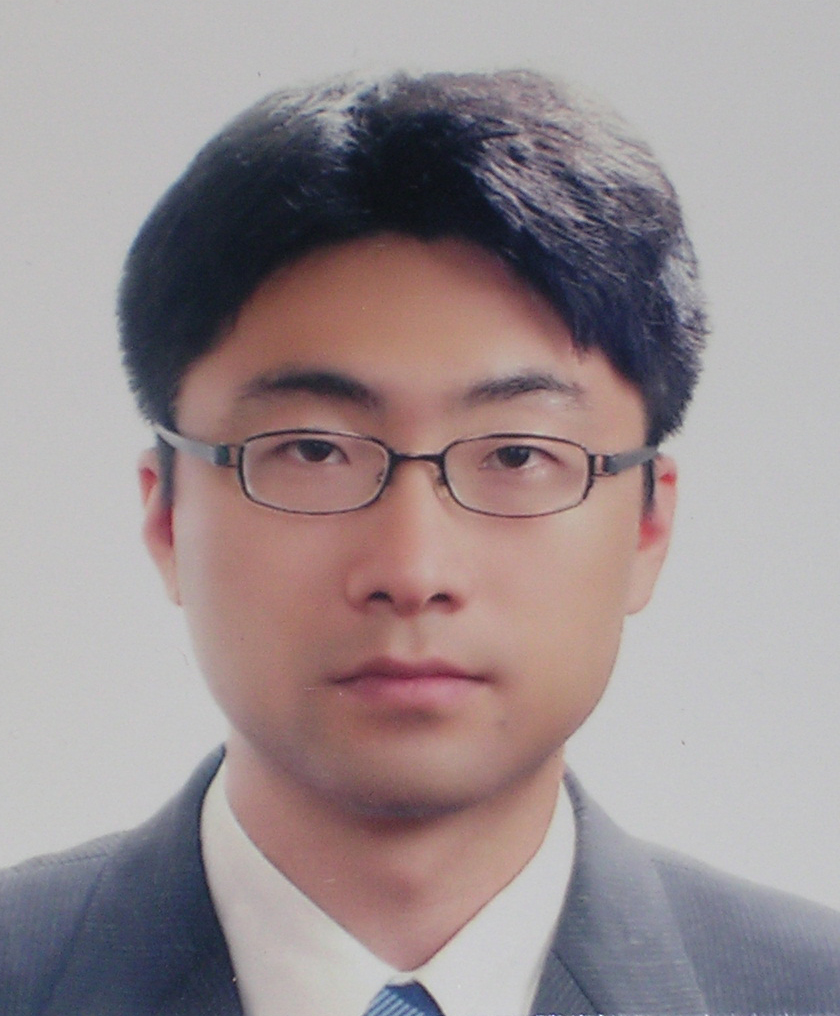
Youngbok Ryu
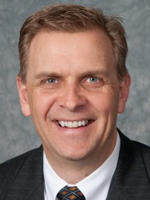
Richard Swanson, PhD
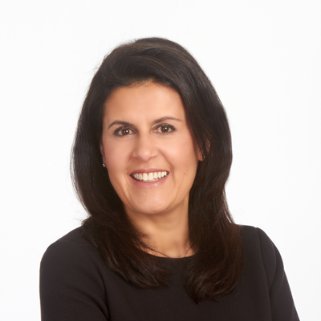
Noradeen Farlekas
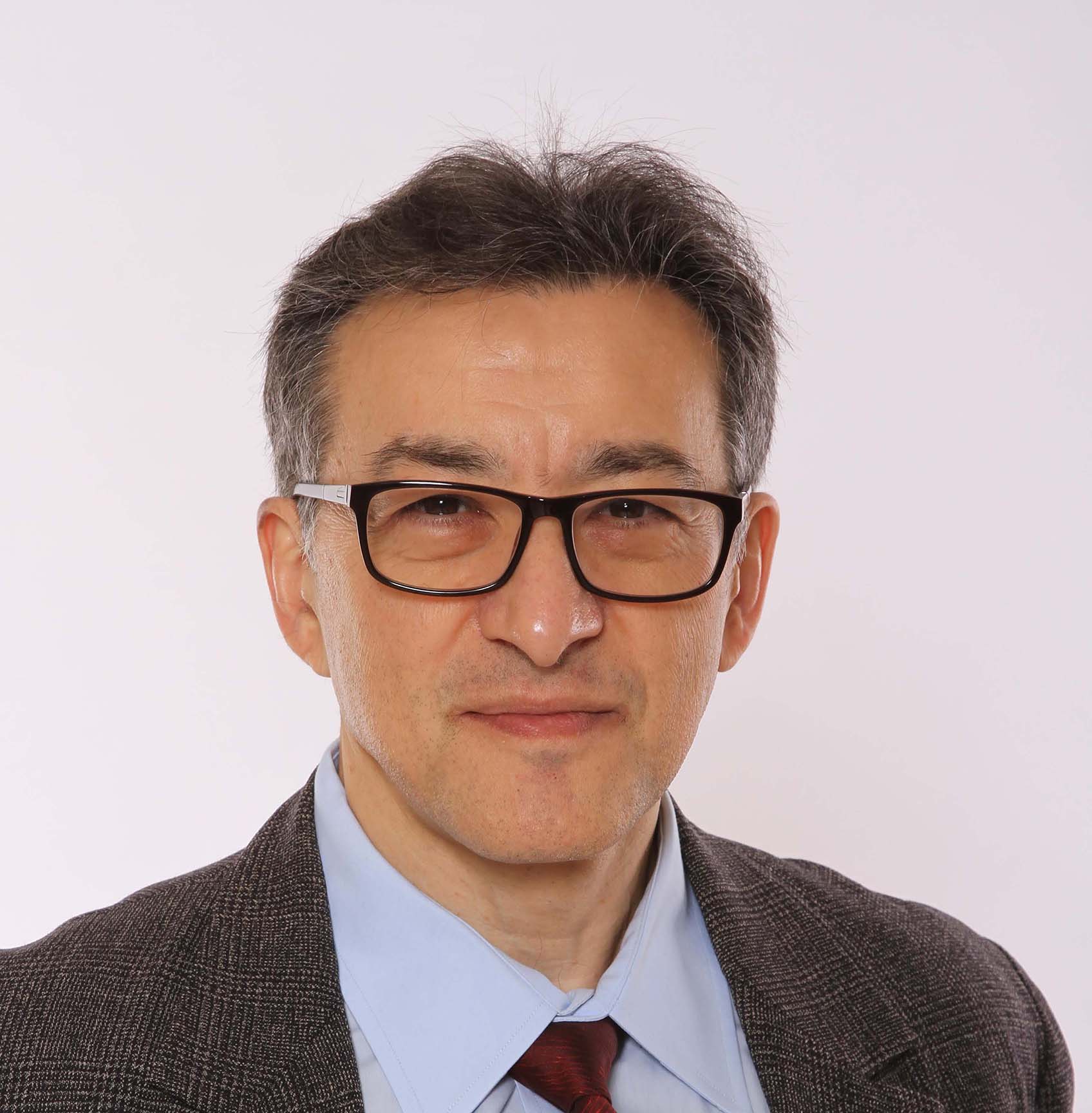
Mikhail Oet
By enrolling in Northeastern, you’ll gain access to students at 13 campus locations, 300,000+ alumni, and 3,000 employer partners worldwide. Our global university system provides students unique opportunities to think locally and act globally while serving as a platform for scaling ideas, talent, and solutions.
Below is a look at where our business alumni work, the positions they hold, and the skills they bring to their organization.
Where They Work
- State Street
- Fidelity Investments
What They Do
- Business Development
- Entrepreneurship
What They're Skilled At
- Customer Service
- Project Management
- Strategic Planning
Learn more about Northeastern Alumni on Linkedin .
Related Articles

What Can You Do with a Master’s in Economics? 5 Career Paths

10 Economics Careers to Power Your Future

In-Demand Skills Human Resources Managers Need to Stay Competitive
- People/Staff
SOAS-Wits joint PhD in Applied Development Economics
Research in heterodox economics or political economy with a focus on Africa, jointly supervised by SOAS and Wits. Upon successful completion of the programme, students will be awarded a single co-badged certificate conferred by both SOAS and Wits.
The joint PhD between SOAS and Wits will push boundaries of heterodox economics or political economy by anchoring the analysis explicitly in African realities and confronting particular conceptual frames with emerging empirical evidence. Whether they focus on a micro or macro object, the research projects will have in common a systemic and historic analysis, taking into account, as appropriate, intersecting social relations, mutations of the state and evolving international political-economic and financial relations. The research projects will hence strengthen analysis that is strongly theoretically grounded while empirically informed, in contrast to current trends in (development) economics to eschew theory in favour of an experimental and purely empirical knowledge base.
The research programme will also be explicitly decolonial, by critically querying existing research practices, by drawing on knowledge across Africa, and by explicitly situating contemporary phenomena in their historically evolved (and regionally interdependent) contexts.
Structure of the programme
The research degree embodies a core of training in research methods combined with a clear structure of progression thereafter. The training components are explained below. The duration and structure of the research degree will be as follows:
Full time research degree: 3 years plus 1 year writing up
Year 1 - Research Training
Research training will be offered by the SOAS Economics Department and the SOAS Doctoral School and delivered in a blended fashion, providing the opportunity for remote attendance for the PhD students with Wits as their home institution.
Year 1 – Literature review and Upgrade
Students will normally be expected to set the foundations of their project through an extensive literature and plan for the continuation of the research and, on this basis, pass an upgrade from MPhil to PhD status within 9 months of commencing the degree.
Year 2-3 - Research
Core research undertaken; primary and secondary data collection as appropriate, thesis chapters finalised. Students may also choose to undertake international mobility to and from their home institution.
Year 4 - Write up
If necessary, a fourth year can be taken to write the final thesis. Examination of the thesis will take place after submission within the 4th year.
Supervision Arrangements
Each research project will be jointly supervised across SOAS and Wits. Remote access will be deployed to facilitate joint meetings. Students will have a supervisor at SOAS who will normally be located in the Economics Department and a supervisor at Wits who will usually be located in the School of Economics and Finance. Supervisors from each institution will be appropriately qualified for doctoral supervision. Beyond this, at SOAS, the Departmental Director of Doctoral Studies has overall responsibility for SOAS research students, being available to discuss general problems. At Wits, this role falls to the PhD Coordinator of the School of Economics and Finance. Further details are set out in the Student Agreement. The PhD Student Agreement must be approved by the Participating Student and designated authorised signatories from each Partner Institution.
Career Opportunities
Graduates of this programme will leave with a solid grounding in technical and statistical skills, research methods and data collection and an ability to think laterally, take a global perspective, and employ critical reasoning with a detailed insight into the context of African countries .
This joint PhD programme will coordinate a programme of work in heterodox (feminist) economics or political economy that focuses on the way in which mutually reinforcing tendencies of climate breakdown, financialisation, and post-pandemic economic and social pressures affect multiple dimensions of wellbeing, including the institutions, norms, policies and practices conditioning daily life in Africa.
The programme seeks candidates interested in conducting doctoral research on one of the following areas/projects:
Project 1: Labour relations, financialisation and technological change in Africa
We call for PhD research proposals that explore changing labour relationships and forms of work in Africa in the context of financialisation of the economy and technological change. Over the last twenty years, these economies have undergone transformations linked to financialisation and digitalisation. These changes in modern capitalism have impacted both the core and the periphery of the global economy, including areas where industrialisation is least advanced. This has had an impact on the contractual forms involving wage relationships and on the organisation of labour in Africa, regardless of the sectors and the degree of formality of these jobs. Moreover, it has also had an impact on the daily life of Africans, retroacting on the wage relationship, and other forms of labour and work more generally. Thus, much of the working life that takes place in the sphere of production is connected to and partly determined by other spheres, including circulation and reproduction. How does the digitalisation and financialisation of everyday life in Africa impact on the mutations of work in Africa? Supervisors: Ben Fine (SOAS), Bruno Tinel (Wits) and Satoshi Miyamura (SOAS)
Project 2: Unlocking sustainable structural transformation pathways in Africa
This call is for PhD proposals that investigate new structural transformation pathways in an age of climate crisis, with a focus on the industrial, competition and political economy dynamics of diversification in Africa. In this context, the research will also look at the role of government, specifically with respect to industrial and competition policy as key instruments for promoting structural transformation, shaping industrial value chains and regulating markets.
The project would explore country or value chain specific issues at the intersection of four inter-linked research and policy areas: energy transition, mineral resources, reorganization of supply chains, and infrastructure development. Each one of these areas will be explored from a developmentalist perspective, hence looking at them as opportunities for industrialisation (or re-industrialisation) in Africa.
The project would include an assessment of the feasible pathways through which structural transformation can be made more environmentally sustainable and socially inclusive. In this respect, one aspect of this research will be also to analyse ways in which real (and apparent) trade-offs between social, economic and environmental objectives have been understood and overcome in specific country contexts.
We welcome comparative and mixed methods approaches, including quantitative and qualitative analysis based on both primary and secondary data, interviews with key stakeholders and secondments in relevant organisations. Supervisors: Antonio Andreoni (SOAS) and Lumkile Mondi (Wits)
Project 3: Examining the financialisation of infrastructure in Africa: a feminist political economy approach
This project seeks to examine the implications of private financial involvement in public sector infrastructure provision in Africa using an interdisciplinary feminist political economy approach. We seek proposals which explore infrastructure provision in African economies, with particular reference to the imperatives posed by the climate crisis for both mitigation and adaptation, preferably utilising the Systems of Provision approach as pioneered by Fine and Leopold (2013) (see Bayliss and Fine 2021) to provide a multidimensional assessment of the chosen sector. Proposals can focus on any (infrastructure) sector of interest to the candidate (for example, transport, water, energy, and so on) and focus on one or multiple African countries. The proposal is part of a broader Wits-SOAS doctoral programme that seeks to advance heterodox (feminist) political economy in a research programme that examines the implications of the interactions between climate breakdown, financialisation and post-pandemic economic and social pressures for the infrastructure of daily life on the African continent. Supervisors: Gilad Isaacs (Wits) and Elisa Van Waeyenberge (SOAS)
Project: 4 State responses to unemployment in South Africa
This is a call for PhD proposals that interrogate state responses to unemployment in post-apartheid South Africa. South Africa has one of the highest rates of unemployment in the world, and it might have been expected that substantially reducing unemployment would have been a priority of the democratically elected government from 1994. Part of this research project would involve cataloguing the different government initiatives to reduce unemployment over the last three decades and contextualising these initiatives in the national political economy of South Africa as well as within the global economic context. The project would also engage with the effectiveness of different interventions and compare the approaches adopted by the government in South Africa to those adopted in other countries in the Global South with high unemployment regimes. The project considers mixed methods approaches, including econometric analysis based on survey and administrative data, international comparative analysis and a close examination of policy documents, appropriate databases, and relevant academic literatures. There is also the possibility of including qualitative research methods, involving, for example, interviews with key stakeholders in government and other institutions. Supervisors: Dorrit Posel (Wits) and Miguel Ni ñ o-Zaraz ú a (SOAS)
Entry Requirements
Students will need to apply to both institutions via each institution websites by 31 May 2024. For details on how to apply to SOAS, see the how to apply pages.
Students will need to meet entry requirements of both institutions. For SOAS, this is a "good" Masters degree in (development) economics or any relevant discipline and a reference. For Wits, this is a Masters in Economics or in Applied Development Economics or any other suitable background.
As part of the application process, students will be asked to indicate either SOAS or Wits as their ‘home institution’. This is the institution where students will physically enrol and be based at for the duration of the PhD.
International Mobility
All students will be offered the opportunity to undertake international mobility to and from SOAS or Wits during the PhD, however it is not mandatory to complete this programme.
University Application Process
- Applications are handled centrally by the Student Enrolment Centre (SEnC) . Once your application is complete in terms of requested documentation, your application will be referred to the relevant School for assessment. Click here to see an overview of the Wits applications process.
- Please apply online . Upload your supporting documents at the time of application, or via the Self Service Portal .
- Applicants can monitor the progress of their applications via the Self Service Portal .
- Selections for programmes that have a limited intake but attract a large number of applications may only finalise the application at the end of the application cycle.
Please note that the Entry Requirements are a guide. Meeting these requirements does not guarantee a place. Final selection is made subject to the availability of places, academic results and other entry requirements where applicable.
International students , please check this section .
For more information, contact the Student Call Centre +27 (0)11 717 1888, or log a query at www.wits.ac.za/askwits .
University Fees and Funding
Click here to see the current average tuition fees. The Fees site also provides information about the payment of fees and closing dates for fees payments. Once you have applied you will be able to access the fees estimator on the student self-service portal.
For information about postgraduate funding opportunities, including the postgraduate merit award, click here . Please also check your School website for bursary opportunities. NRF bursaries: The National Research Foundation (NRF) offers a wide range of opportunities in terms of bursaries and fellowships to students pursuing postgraduate studies. External bursaries portal: The Bursaries South Africa website provides a comprehensive list of bursaries in South Africa.
Ph.D. in Organization Development & Change
Education professionals can advance their expertise in organization development with our part-time, online Ph.D. program, which includes a one-week summer immersion on campus.
What makes the Ph.D. in Organization Development & Change at SHU unique?
Sacred Heart University’s organization development & change doctoral program is designed for professionals who are committed to ethical behavior and promoting social justice in both their scholarship and practice.
Our program prepares mid- and senior-level executives and experienced practitioners for significant contributions in their workplaces and communities. Committed to ethical behavior and social justice, our students critically evaluate and advance theory, research, and practice in organization development, change management, leadership and related social and behavioral sciences.
Earning this Ph.D. will position you to advance significantly in fields related to organizational change and leadership. You will:
- Collaborate closely with faculty mentors who support your specific research interests and professional goals
- Engage in interdisciplinary research involving fields like psychology, business and sociology
- Enhance your understanding of global leadership practices and ethical organizational behavior
- Participate in teaching assistantships and gain hands-on experience in academia
Commitment to Diversity & Inclusion
Our faculty prioritize creating inclusive environments for students from diverse backgrounds. The program emphasizes ethical practice, social justice, and the application of comprehensive, integrated frameworks to organizational development.
Teaching Opportunities & Mentorship
Starting from the second semester, Ph.D. students may have opportunities to teach within related programs, enhancing their pedagogical skills. The program includes structured mentorship, specifically offering BIPOC doctoral students support through dedicated mentoring alliances.
Why Earn Your Ph.D. in Organization Development & Change from SHU?
Located in Fairfield, Connecticut, Sacred Heart University (SHU) is a dynamic, progressive institution dedicated to academic excellence and real-world experience. Home to a vibrant community of scholars and practitioners, SHU offers cutting-edge graduate programs that prepare students for leadership in today's global marketplace.
Part-time, Online Program for Working Professionals
This program is tailored for working professionals, offering six credits per 14-week semester, leading up to dissertation research. The program kicks off with a two-day orientation on campus and includes a low-residency one-week immersion each summer.
Courses cover a range of topics essential for organizational leaders and change agents, including:
- Advanced leadership
- Quantitative and qualitative research methods
- Dynamics of change and innovation
- Ethical practice and social responsibility in organizations
- Strategies for effective teaching and learning in higher education
Career Advancement Opportunities
A Ph.D. in organization development & change focuses on developing research skills and theoretical knowledge that prepares graduates to influence and lead organizational change effectively. This degree is particularly valuable for those aiming to pursue careers in academia, consultancy or senior management roles in various sectors.
What can you do with a Ph.D. in organization development & change?
Graduates with this degree find themselves well-prepared for a variety of roles, including:
- Senior consultant in change management
- Faculty in business and management schools
- Director of organizational development or human resources
- Lead researcher in organizational studies
- Strategic leadership roles in corporate and nonprofit sectors
These positions are pivotal in shaping organizational cultures and practices across both private and public sectors, making a direct impact on organizational success and employee satisfaction.
Now accepting applications for fall 2025.
Related Links
- Sociology, Criminology & Criminal Justice Department
- Course Descriptions
- Faculty & Staff

Master in Public Administration
Prepare for greater responsibility across sectors with this flexible two-year program
Key Program Information
Program Length: Two years (varies for students pursuing concurrent degrees)
Degree Awarded: Master in Public Administration
Admission Application Deadline: December 2024
Financial Aid Application Deadline: January 2025
Contact the MPA Program
79 John F. Kennedy Street Littauer Building, Room 126 Cambridge, Massachusetts 02138
Elevate your impact as a public leader
The Master in Public Administration Program is for aspiring leaders with real-world experience and graduate-level coursework in economics, public policy, or management.
The Master in Public Administration (MPA) curriculum is flexible. You create a study plan that reflects your academic interests, focuses on your personal and professional aspirations, and integrates across disciplines.
You may also decide to pursue a concurrent degree in business, law, medicine, or other professional fields. You’ll earn two degrees in less time and acquire even more skills you can use to make a difference in the world.
“HKS provided opportunities for me to expand the narrative of what diversity looks like in foreign policy and foreign service.” —Korde Innis MPA 2023
About the MPA Program
The MPA curriculum is flexible. You’ll create your own 64-credit study plan that reflects your academic interests and professional aspirations.
As an MPA student, you’ll take eight credits in a Policy Area of Concentration as well as four credits in each of these key areas:
- Economics and Quantitative Analysis
- Management, Leadership, and Decision Sciences
- Public Ethics and Political Institutions
You’ll select your remaining credits to support your unique intellectual and professional objectives. You can take classes across academic disciplines at HKS and cross-register into courses at other Harvard graduate schools as well as at MIT Sloan School of Management and The Fletcher School at Tufts University.
Sample Courses
- MLD-223: Negotiating Across Differences
- API-135: Economics of Climate Change and Environmental Policy
- DPI-640: Technology and the Public Interest: From Democracy to Technocracy and Back
Concurrent Degrees
You might consider pursuing a second degree concurrently if you’re interested in how the world’s public challenges can be addressed at the intersection of business, law, medicine, design, or other fields.
Pursuing a concurrent degree reduces coursework and residency requirements and makes it possible to earn two degrees in a shorter amount of time.
Concurrent degree students complete 48 credits at HKS, including four credits in each of the key areas:
Concurrent degree students are not required to fulfill the Policy Area of Concentration requirement.
Degree Requirements
The MPA Program consists of four semesters of full-time coursework in residence at HKS.
To graduate, you must:
- Earn at least 64 credits
- Finish with a GPA of B or better
- Earn a B- or higher in all courses counting towards the distribution requirements
- Matriculate as a full-time, in-residence student and take between 12-20 credits per semester
- Fulfill a Policy Area of Concentration requirement by taking eight credits in one of the policy areas at HKS
- Economics and Quantitative Analysis
HKS faculty members are among the most influential leaders and thinkers in their fields. They have contributed vital research and scholarship to their fields. Served in U.S. administrations. Founded learning labs to assist local communities. Led negotiations to reduce nuclear stockpiles. Reported on human rights abuses. Led efforts to address climate change. Advised governments and companies on gender equality.
They are doers as well as thinkers, shaping public policy and devising entrepreneurial approaches to public problems at the local, national, and international levels.
MPA Faculty Chair

Kessely Hong
Mpa at a glance.
*Statistics are based on a five-year average.
Employment Snapshot: MPA Class of 2023 Employment Sectors

* The number of private sector jobs secured by MPA graduates is, in large part, a reflection of the program’s many concurrent degree graduates.
Featured MPA stories
Elevating the stories of diverse, unsung women.
Jamie Mittleman MPA 2022 launched her COVID-adapted dream job: a platform for women Olympians and Paralympians.
A long military heritage shapes a desire for peace
Clark Yuan MPA 2022 wants unique perspectives to have a seat at the table when critical decisions are being made.
From Santiago to Cambridge to Paris
For Ingrid Olea MPA 2020, a journey that started with a career change has led to remarkable achievements in education policymaking.
Applying to the MPA Program
Prerequisites.
There are specific academic and professional prerequisites required to apply to the MPA Program. You must have:
- A bachelor’s degree with a strong academic record
- Three years of professional work experience by September 1 of the year you would enroll in the program
- Master of Business Administration
- Master of International Business
- Master of International Development
- Master of International Economics
- Master of Science in Engineering
How to Apply
A complete application to the MPA Program includes the following:
- Online application
- Three letters of recommendation
- GRE or GMAT required
- Non-native English speakers who did not earn an undergraduate degree conducted in English must submit results of the TOEFL, IELTS, or Cambridge English exam
- Academic transcripts
- $100 application fee or waiver
Read more about how to apply .
The application for the 2025-2026 academic year will be available in September 2024. There is one admission application deadline and one start date for each degree program per year. You may apply to only one master's degree program per admissions cycle.
Tuition & Fees
The cost of attendance for the 2024-2025 academic year is outlined in Funding Your Master ’ s Education to help you plan financially for our master’s degree programs. Living expense costs are based on residence in Cambridge. The 2025-2026 academic year rates will be published in March 2025. HKS tuition and fees are subject to change without notice.
At HKS, we consider financing your education to be a partnership and are here to help guide you. We encourage you to explore all opportunities for funding .
Learn more about the HKS community
Student life, student stories, admissions & financial aid blog.

COMMENTS
This 100% online PhD in economics program allows you to learn from established leaders in economic policy-making. Courses: Economic policy studies, economics & public policy, policy analysis & research design. Credits: 60. Duration: 3 years. Tuition: $595 per hour.
Online PhD in economics programs are typically presented in 100% online formats, allowing students to complete all coursework and program requirements via distance learning. This includes lectures, readings, assignments, and tests, as well as access to support services such as academic, career, and personal counseling.
Online phd economics often vary in length. They may last 4 - 6 years. Determine this aspect with the school you are considering, as pursuing your degree online may affect the duration. Students usually spend the initial 2 years exploring topics in econ such as microeconomics and macroeconomics. Econometrics, and economic theory are often ...
Scientific research and development services: $106,720. Local government, excluding education and hospitals: $86,910. State government, excluding education and hospitals: $80,520. Economist employment is projected to experience a 6% growth through 2032, resulting in approximately 1,200 job openings per year, according to the Bureau of Labor ...
Ph.D. Program. Make an impact: The intellectual rigor from researchers associated with Yale Economics drives innovations in domestic and international policy. Yale's Department of Economics offers a challenging and rigorous academic program, a distinguished and accessible faculty, and a friendly, supportive environment for study.
Doctoral Program. The Ph.D. program is a full time program leading to a Doctoral Degree in Economics. Students specialize in various fields within Economics by enrolling in field courses and attending field specific lunches and seminars. Students gain economic breadth by taking additional distribution courses outside of their selected fields of ...
The most affordable online PhD in Economics is the PhD in Public Policy - Economic Policy offered by Liberty University. At $595 per credit, this 60-credit program costs a total of $35,700 in tuition. Compared to the most expensive program on our list, which costs approximately $52,000, you could save up to $16,300.
PhD Program. Year after year, our top-ranked PhD program sets the standard for graduate economics training across the country. Graduate students work closely with our world-class faculty to develop their own research and prepare to make impactful contributions to the field. Our doctoral program enrolls 20-24 full-time students each year and ...
New York University. New York, NY. #10 in Development Economics. Development economists are concerned with the state of low-income countries and citizens. They may work in research and policy ...
The Ph.D. Program in the Department of Economics at Harvard is addressed to students of high promise who wish to prepare themselves in teaching and research in academia or for responsible positions in government, research organizations, or business enterprises. Students are expected to devote themselves full-time to their programs of study.
Economics. 21,079 EUR / year. 3 years. The Economics programme from Deakin University is supported by experienced researchers with an excellent track record of publishing in top journals in the discipline. Ph.D. / Full-time, Part-time / Online, On Campus. Deakin University Multiple locations.
The Ph.D. program in the Department of Economics at Columbia University trains students to do cutting edge research in economics. Students in our program do research in all major areas of economics including microeconomics, macroeconomics, econometrics, international economics, labor economics, public finance, industrial organization, development economics, and urban economics.
PhD in Economics. At a Glance. 45 credit hours of course work, completed in as little as 2.5 years. Study diverse theoretical perspectives, including post-Keynesian, intuitionalist, evolutionary, and feminist economics. Tailor your field coursework to best match your research interests. Program Director: Professor Nathan Larson.
Resources. The doctoral program in Economics at Rice University provides rigorous training in economic theory and econometrics in order to prepare students for research careers in economics. In 2014, the department launched the Rice Initiative for the Study of Economics (RISE) in order to enhance its role as a leading center of economic research.
Graduate The doctoral program in Economics at Harvard University is one of the leading programs in the world. Supported by a diverse group of faculty who are top researchers in their fields and fueled by a vast array of resources, the PhD program is structured to train and nurture students to become leading economists in academia, government agencies, the technology industry, finance and ...
This doctoral degree program is primarily intended to provide advanced training for economic development professionals rather than academic economists. In a sense, the Doctor of Economic Development can be seen as the link between academic research in economic development and "real world" economic development problems.
SOAS University of London. (4.1) The PhD in Development Economics is a research degree offered by the Department of Economics, and is also part of the PhD pathway, Read more... 3 years Full time degree: £4,860 per year (UK) 6 years Part time degree: £2,430 per year (UK) Apply now Visit website Request info. View 7 additional courses.
The Ph.D. program at Princeton Economics is one of the premier economics programs in the world. The small number of students admitted each year receive training in an exceptional research environment, supported by faculty members who are working at the forefront of research in their fields. Admission to the program is extremely selective. Each ...
University of California, Berkeley. Economics Graduate Office. Department of Economics. 530 Evans Hall #3880. Berkeley, CA 94720-3880. Fax: (510) 642-6615. Email: [email protected]. The Ph.D. program at Berkeley is designed for students interested in pursuing advanced study and conducting original research in Economics.
The Ph.D. Program in Economics at UCLA prepares students for careers as economists in academia, business and government. The program combines rigorous work in economic theory and careful study of real-world problems and institutions. Graduates from this program work at major universities around the world, national and international government ...
The Sustainable Development Policy, Economics and Governance (SDPEG) Ph.D. program offers a transdisciplinary doctoral education in the policies, practices and theories of sustainable development. By offering a core curriculum that includes applied policy and economic analysis, governance and process design, social science methods, and ...
Online application. Statement of purpose (500-1000 words): Identify your educational goals and expectations of the program. Please be aware that Northeastern University's academic policy on plagiarism applies to your statement of purpose. Professional resumé. Unofficial undergraduate transcripts; official transcripts required at the time of ...
SOAS-Wits joint PhD in Applied Development Economics. Research in heterodox economics or political economy with a focus on Africa, jointly supervised by SOAS and Wits. Upon successful completion of the programme, students will be awarded a single co-badged certificate conferred by both SOAS and Wits. In This Section. Overview.
Sacred Heart University's organization development & change doctoral program is designed for professionals who are committed to ethical behavior and promoting social justice in both their scholarship and practice. Our program prepares mid- and senior-level executives and experienced practitioners for significant contributions in their ...
Gain deep knowledge and further develop your skills through credit-bearing courses taught by Stanford faculty. Earn credits toward a masters degree or certificate in a flexible online format. Get started with a few simple steps. Browse our portfolio of graduate courses and graduate certificates. Submit an online application and supply ...
Contact the MPA Program. Email 617-495-7864. 79 John F. Kennedy Street Littauer Building, Room 126 Cambridge, Massachusetts 02138. Elevate your impact as a public leader. The Master in Public Administration Program is for aspiring leaders with real-world experience and graduate-level coursework in economics, public policy, or management. The ...
A Doctor of Philosophy (PhD, Ph.D., or DPhil; Latin: philosophiae doctor or doctor philosophiae) is the most common degree at the highest academic level, awarded following a course of study and research. The degree is most often abbreviated PhD (or, at times, as Ph.D. in North America).It is derived from the Latin Philosophiae Doctor, pronounced as three separate letters (/ p iː eɪ tʃ ˈ d ...
CTU charges a tuition rate of $950 per credit. The curriculum for the university's Ph.D. in real estate consists of 60 credits, translating to a total tuition cost of $57,000. Keep in mind that ...
The best leaders also work on career development for others, as well as themselves. In a climate where the business world can still be topsy-turvy, having an advantage by learning the latest leadership theories and practices can be a vital key to your own success. One route to achieve this is to earn an online PhD in management.
M.S. Thesis (6 credits) 1. CISC 6080 or ECON 5XXX - Capstone Seminar (cross-listed) CISC 6081. CISC 6085 or CISC 6086. Electives. Data Science. One (1) course from the following: CISC 5500 - Data Analysis Tools and Scripting. CISC 5835 - Algorithms for Data Science.